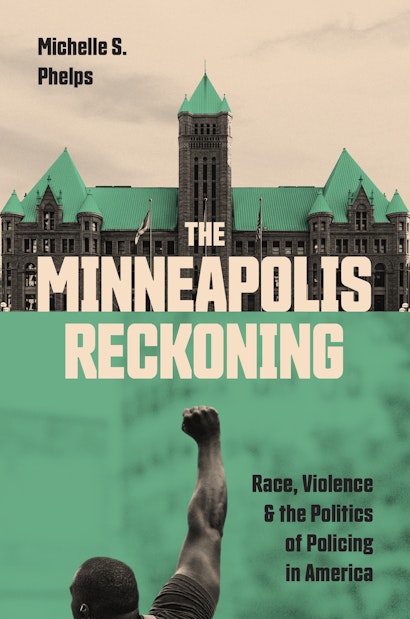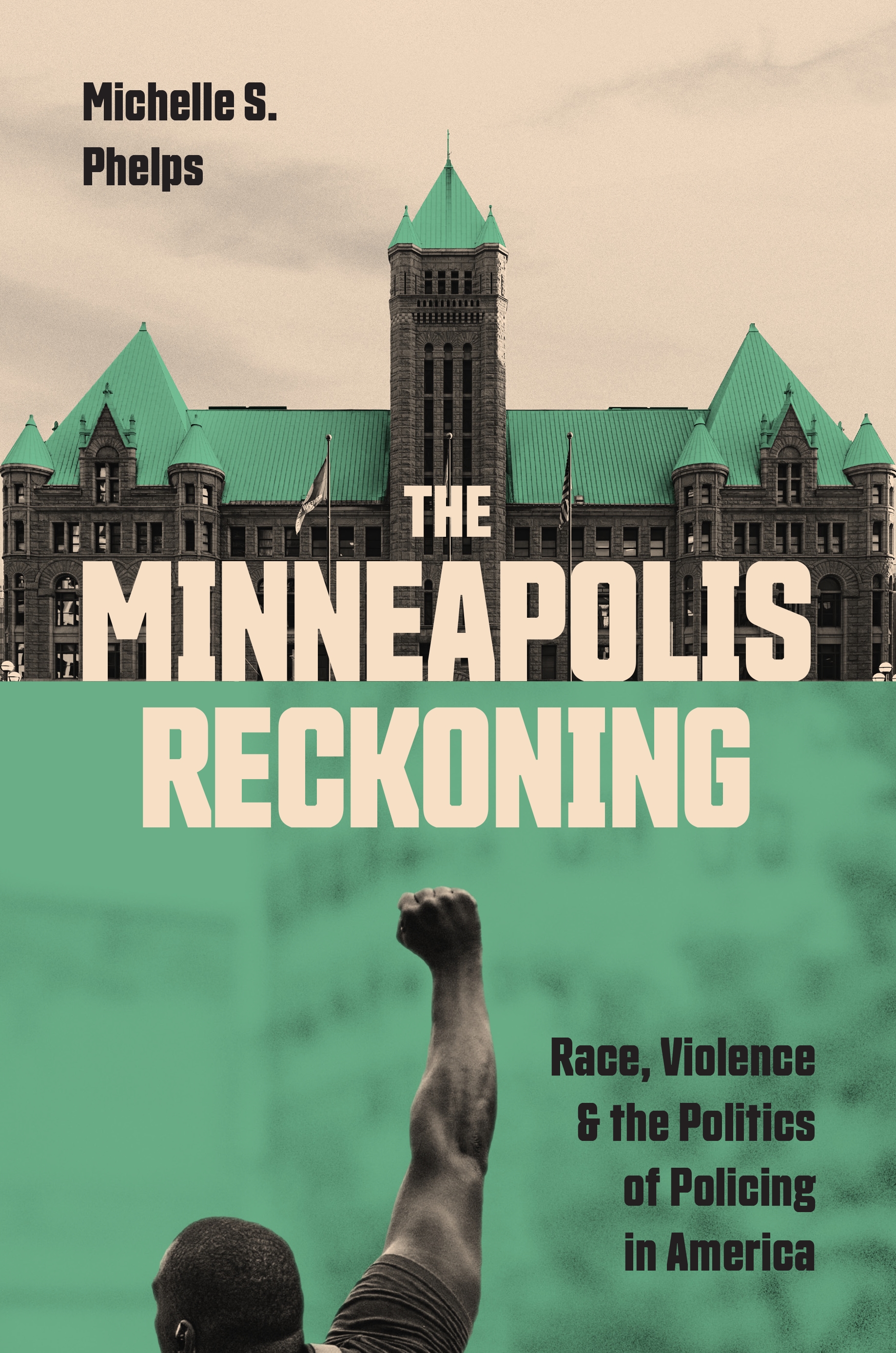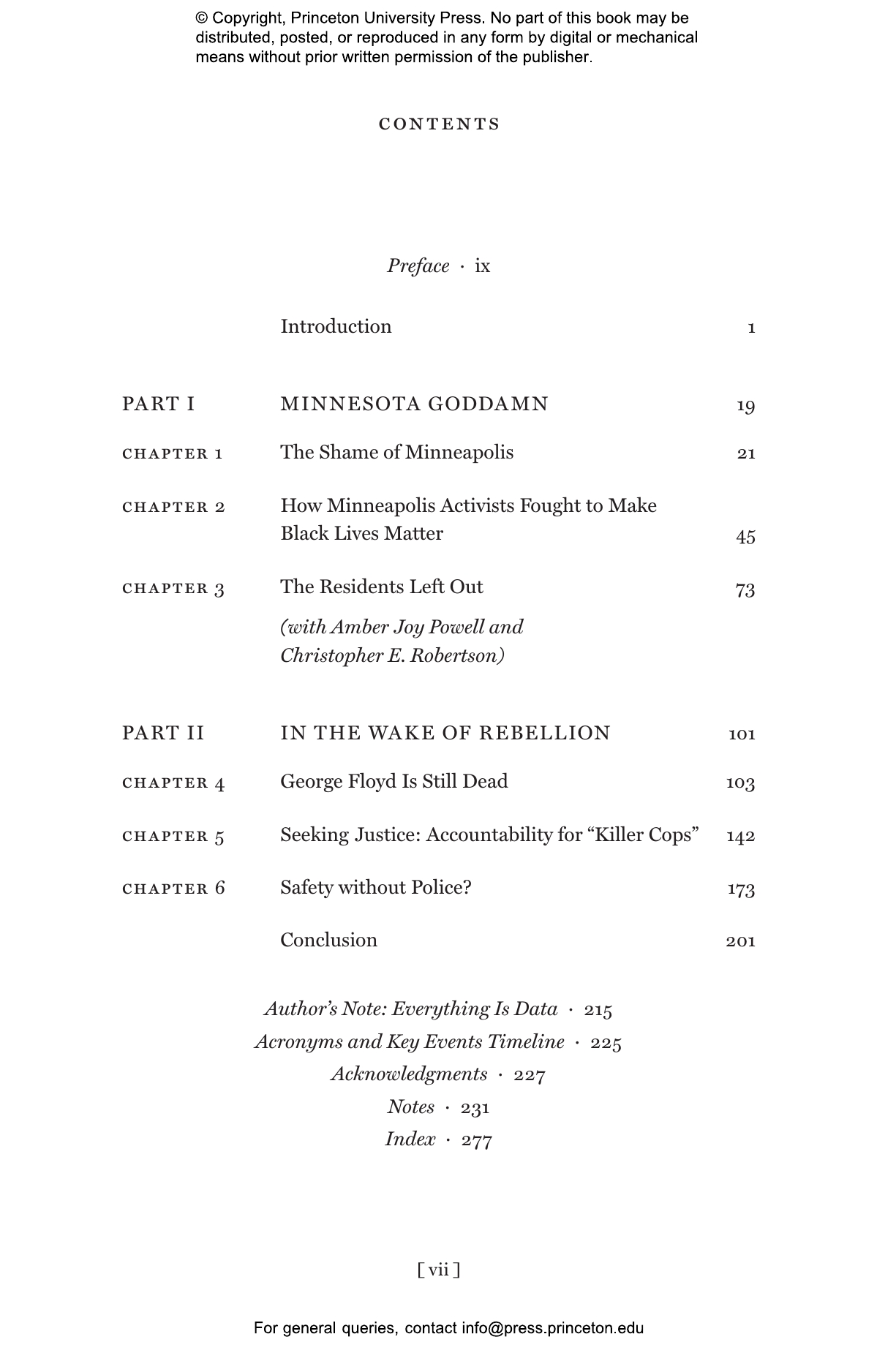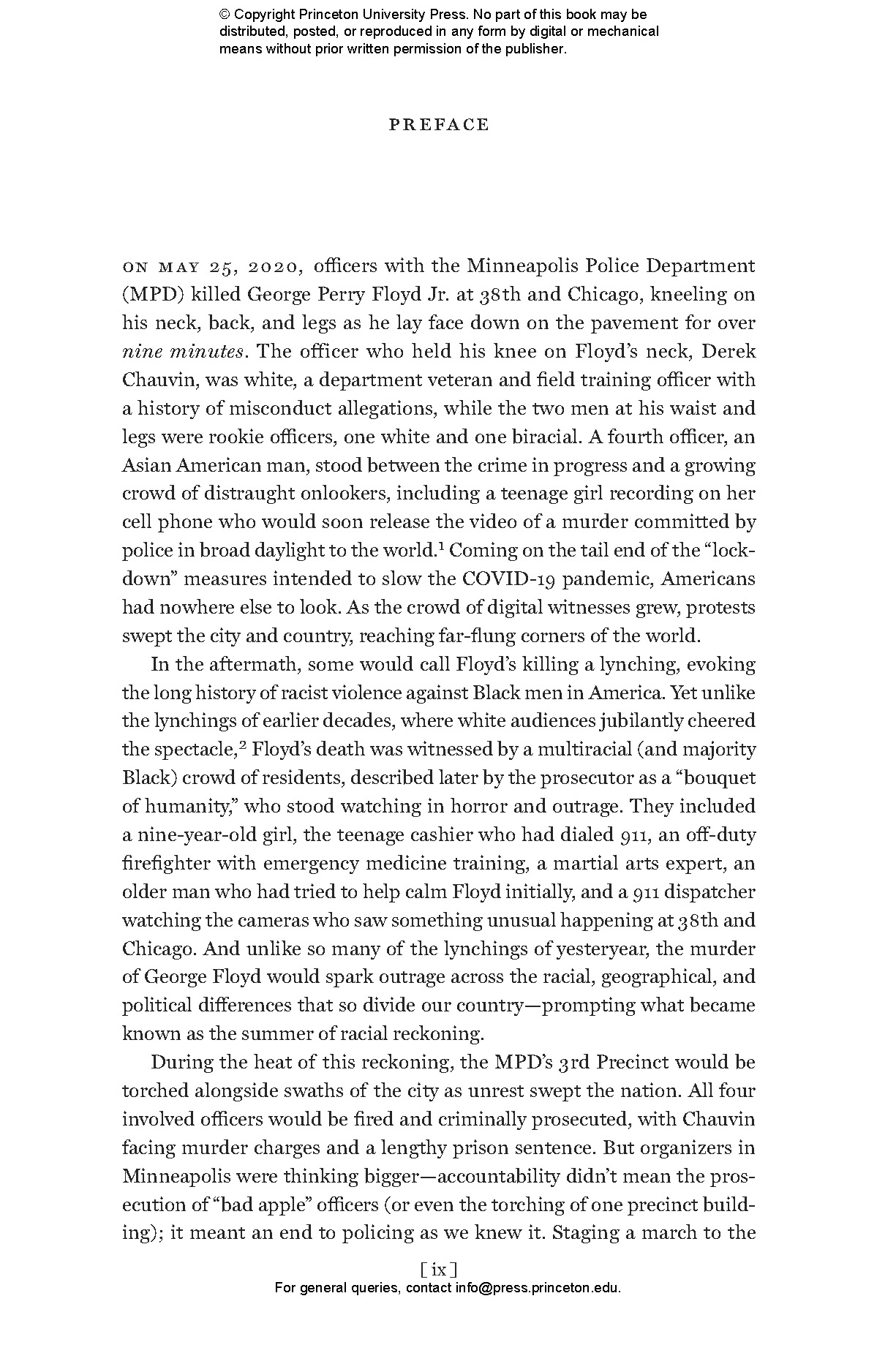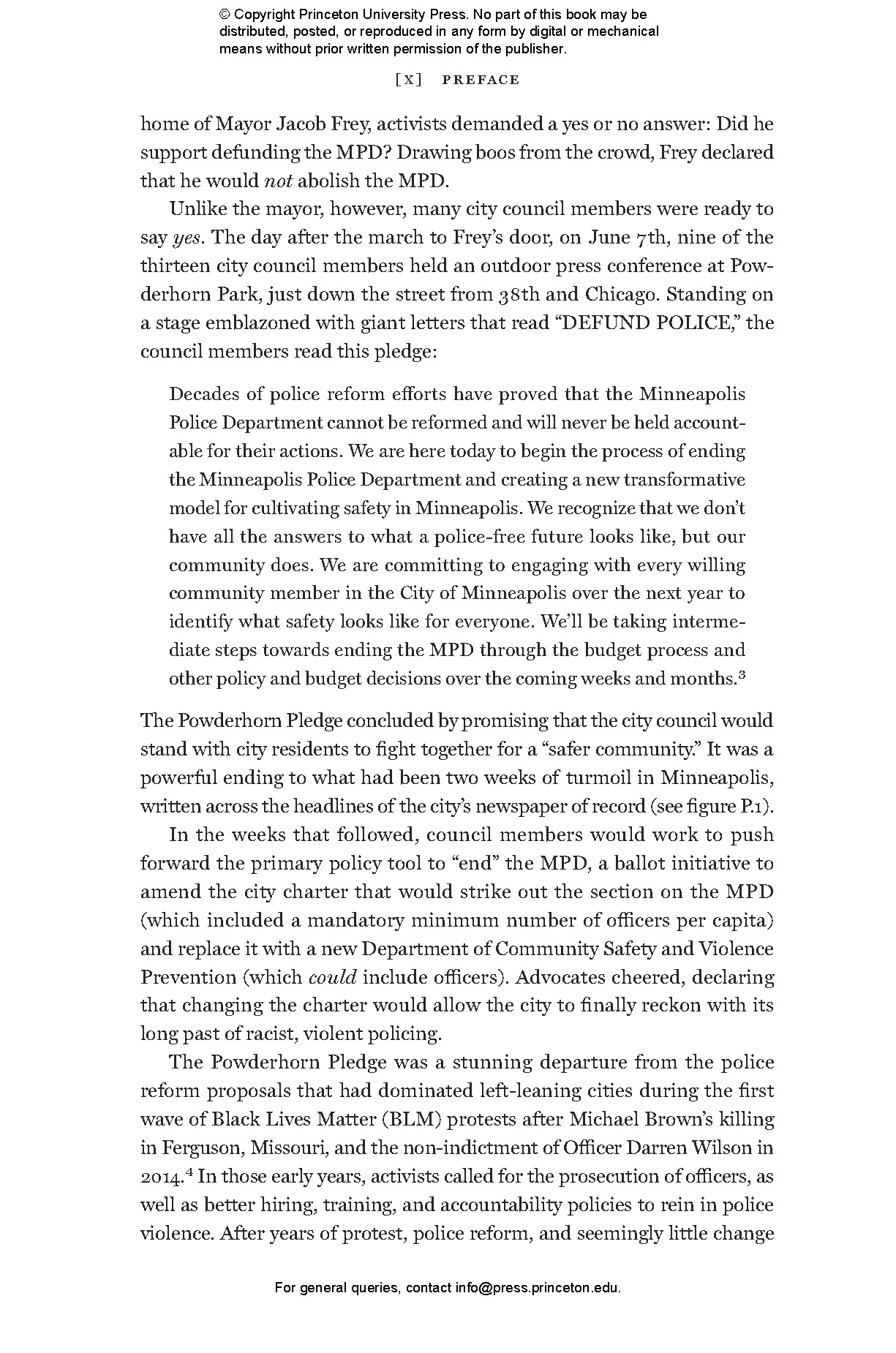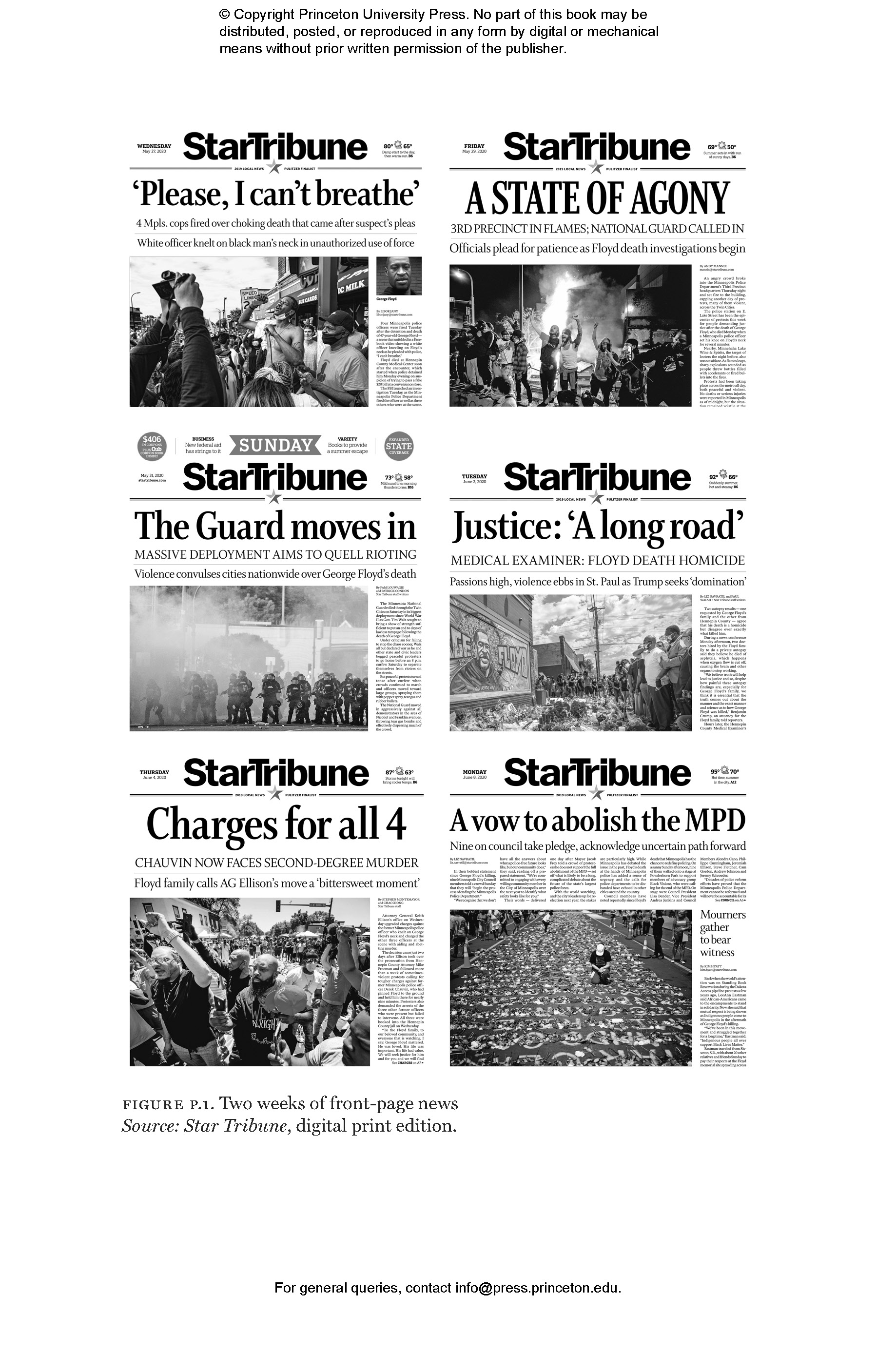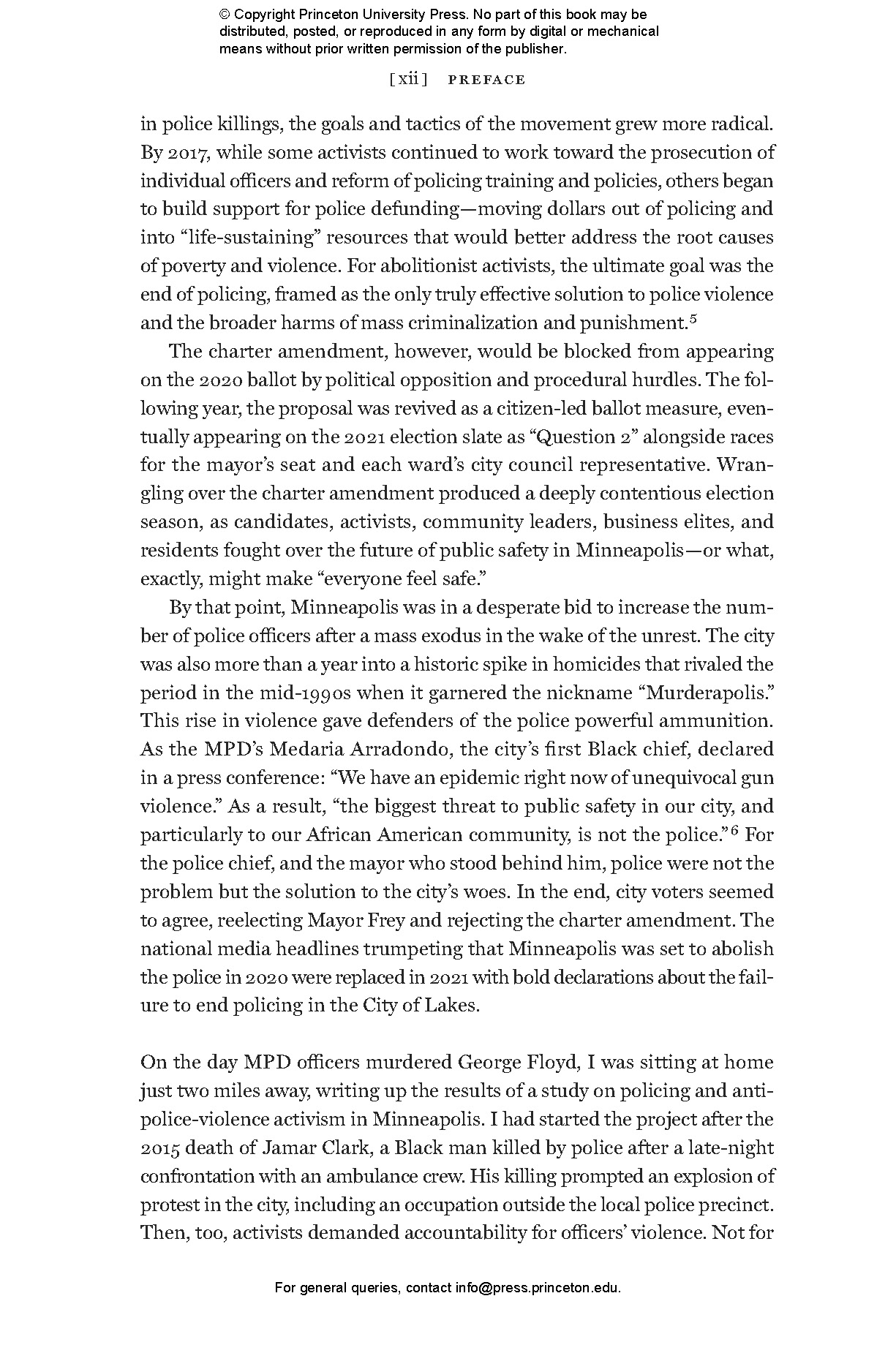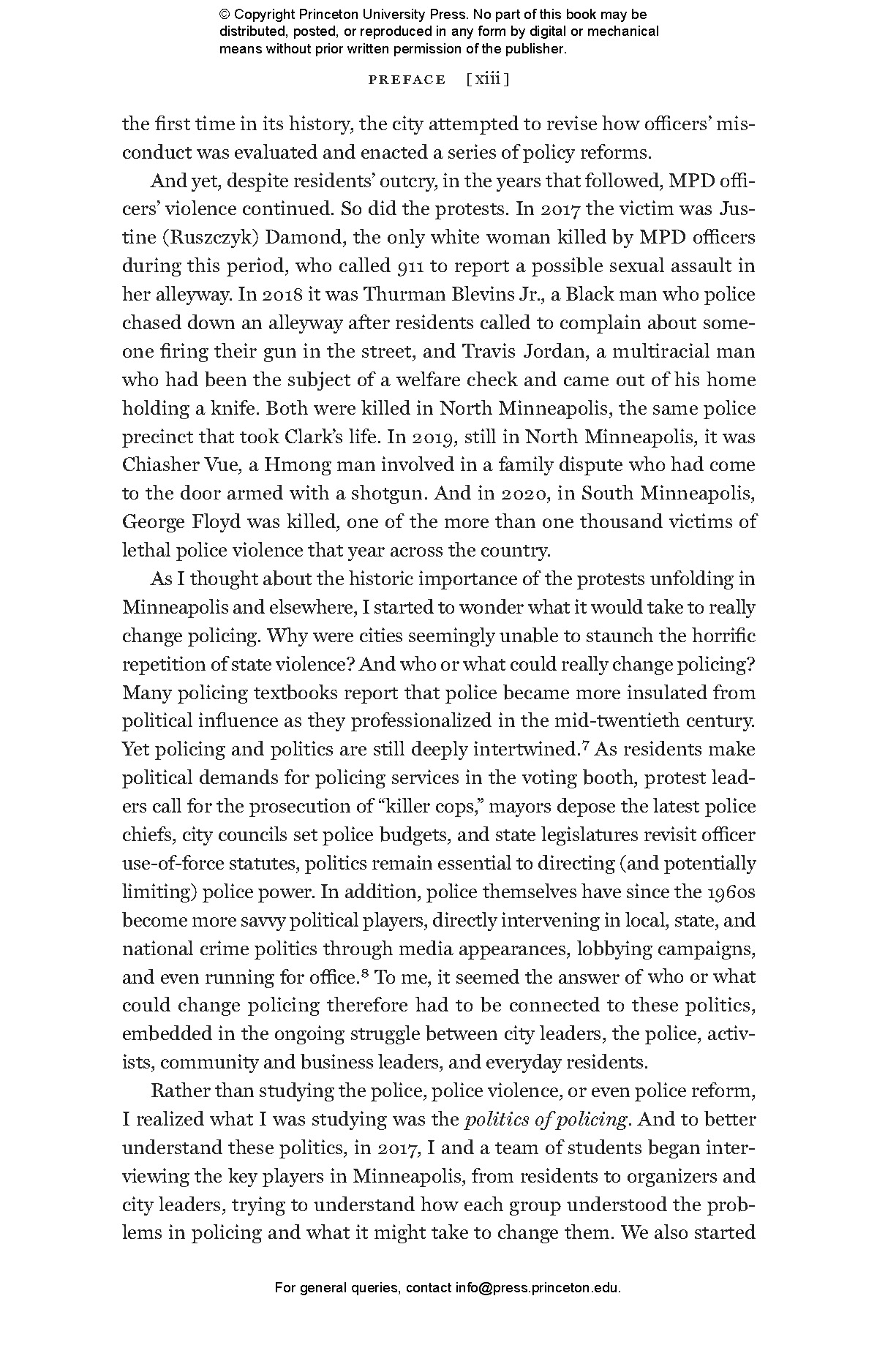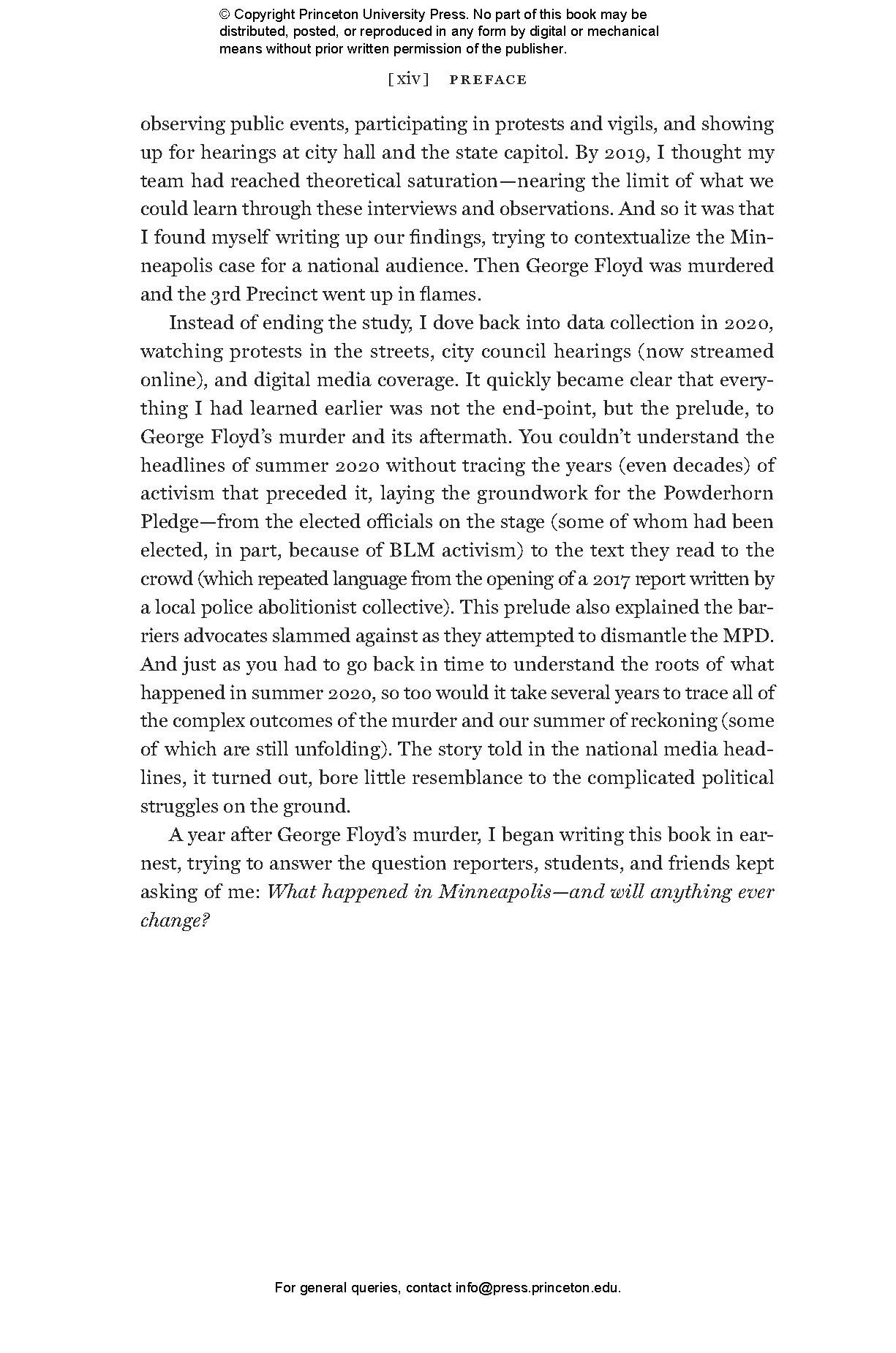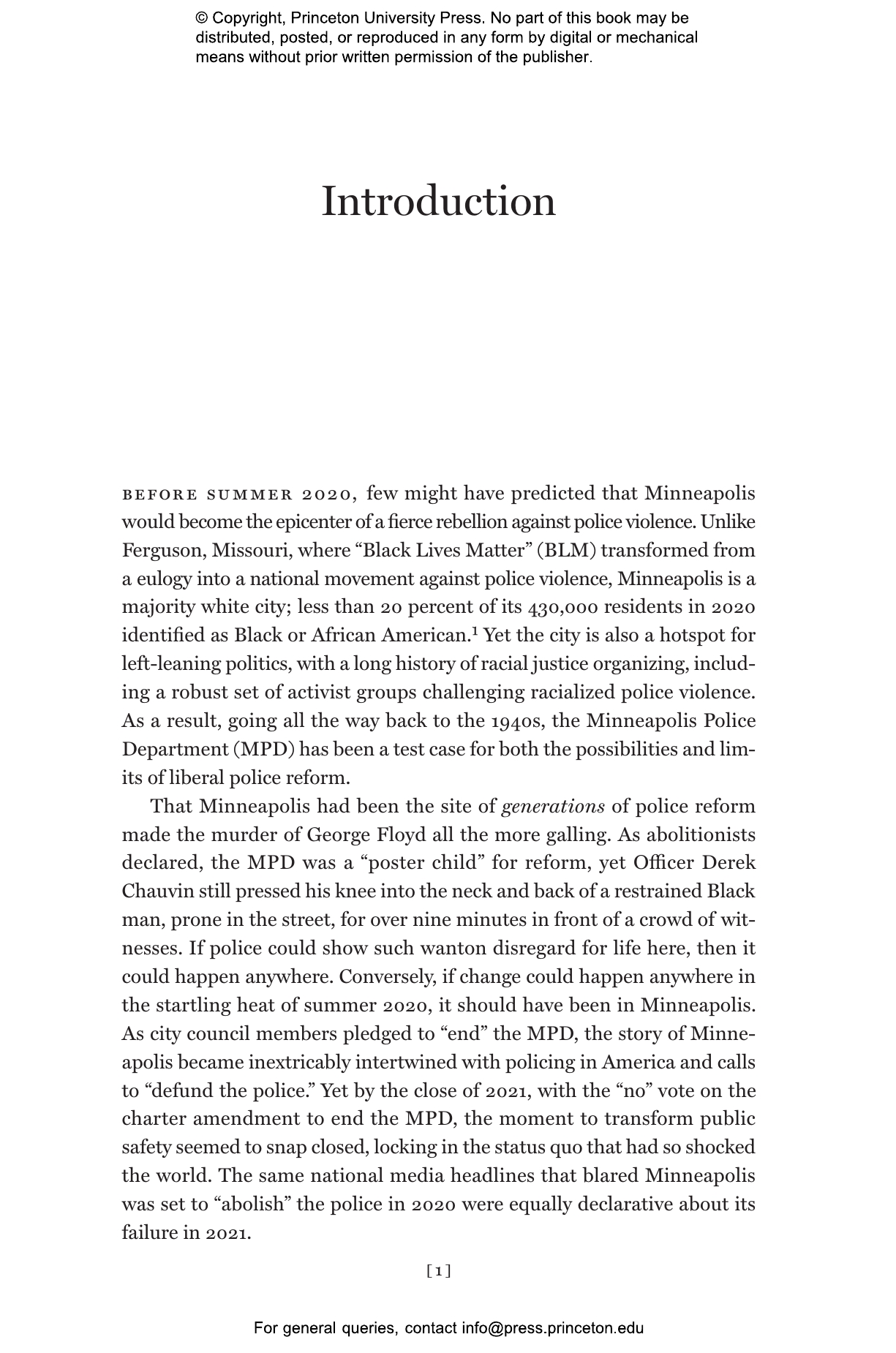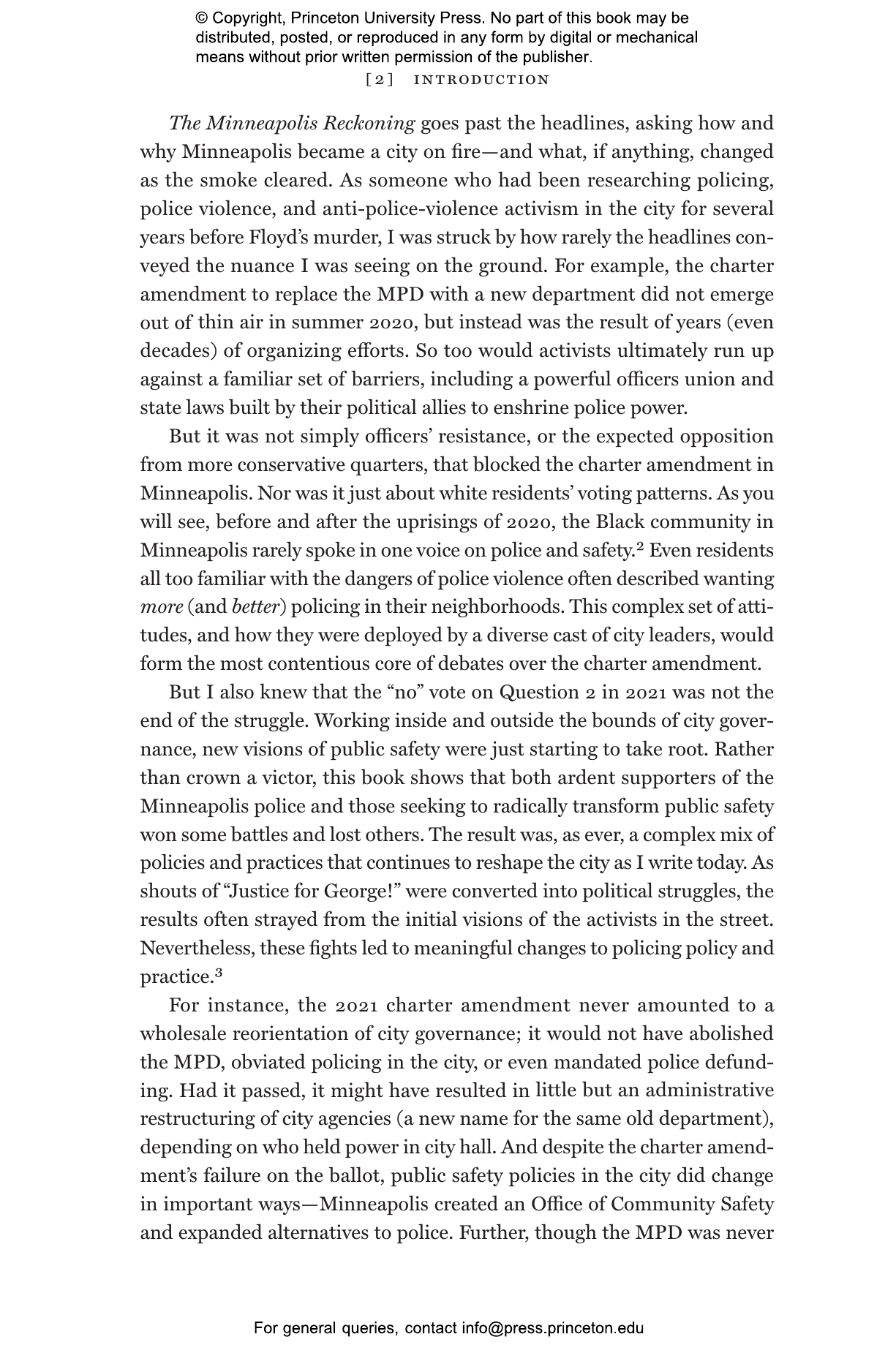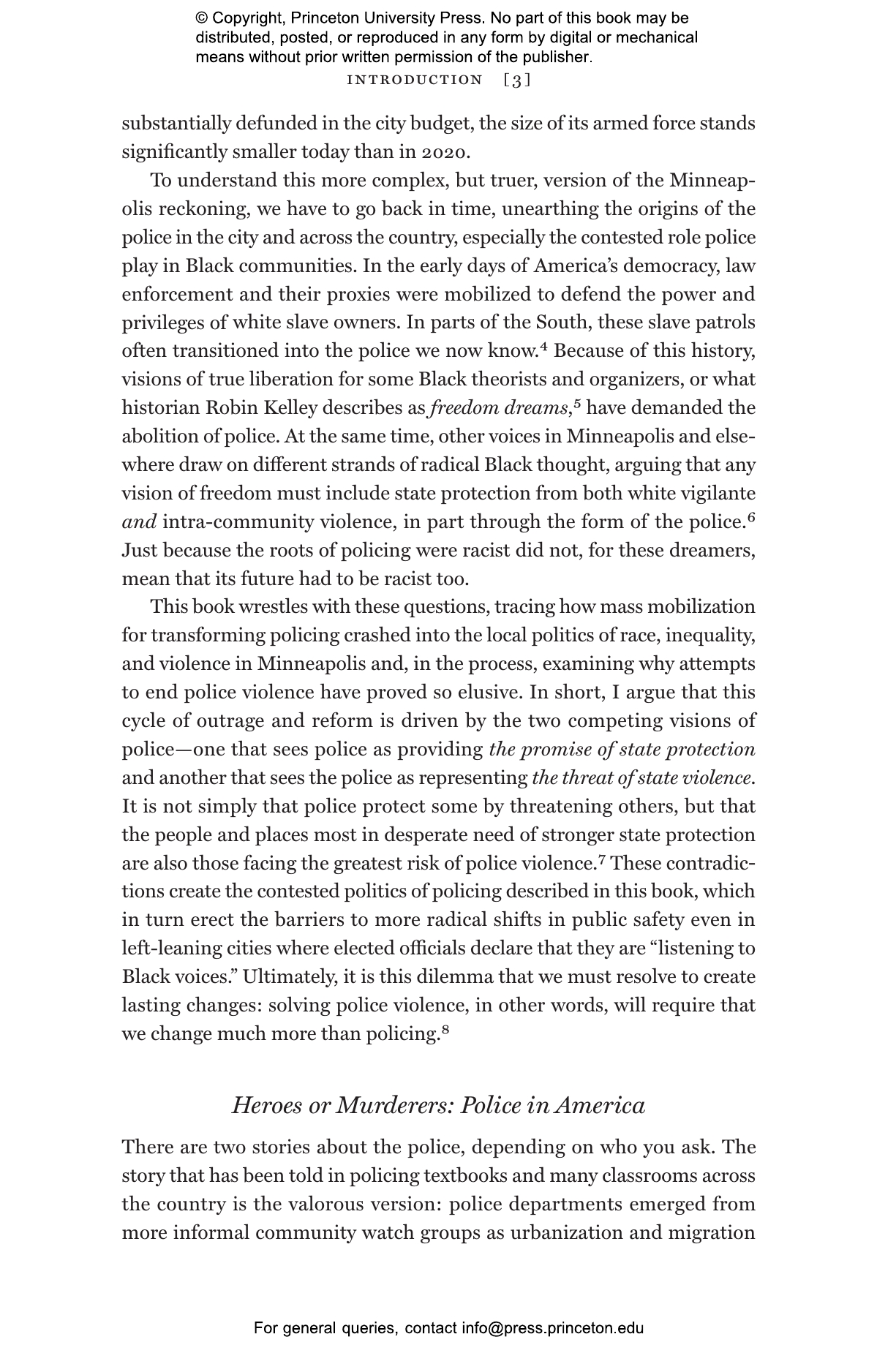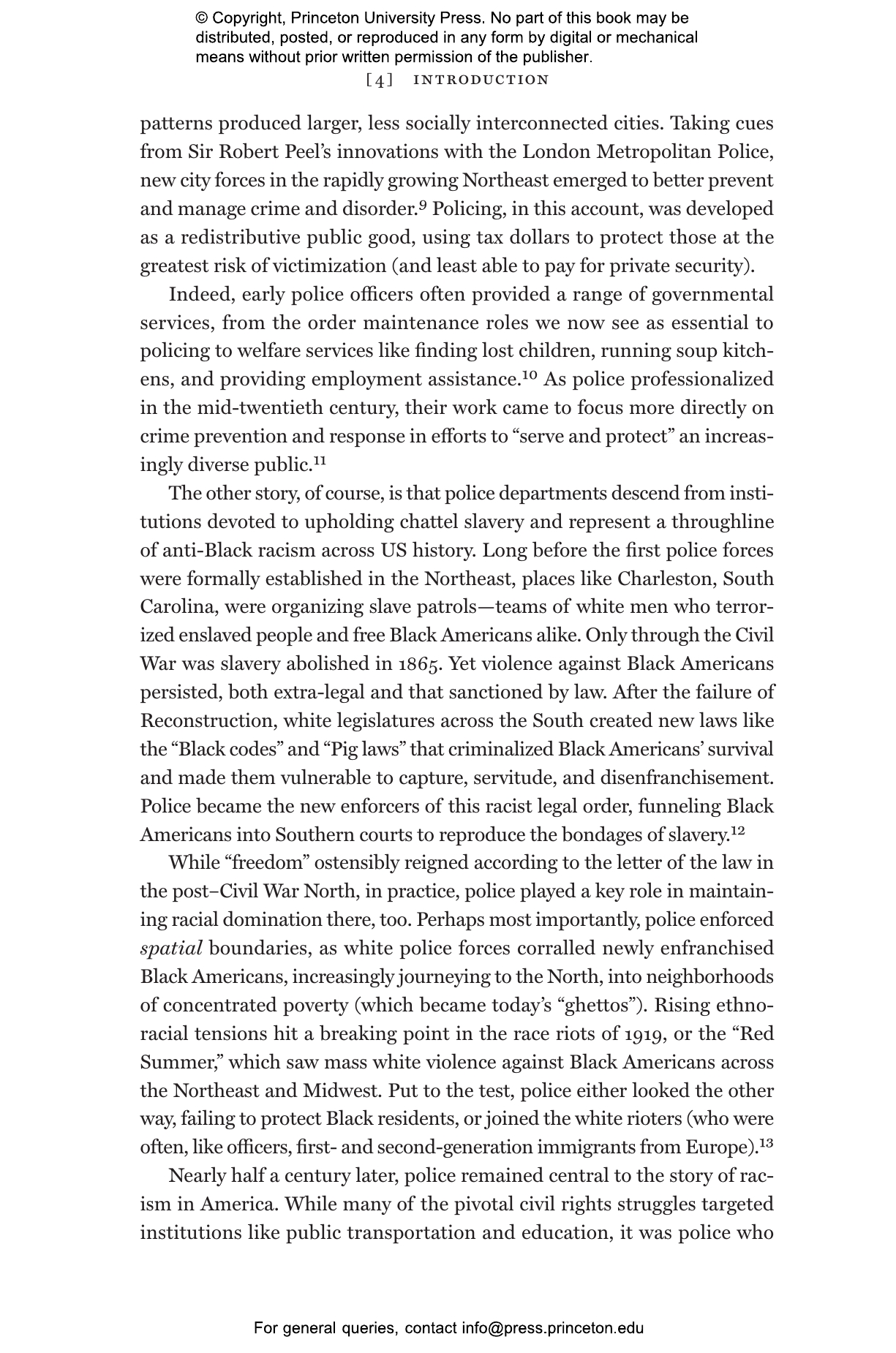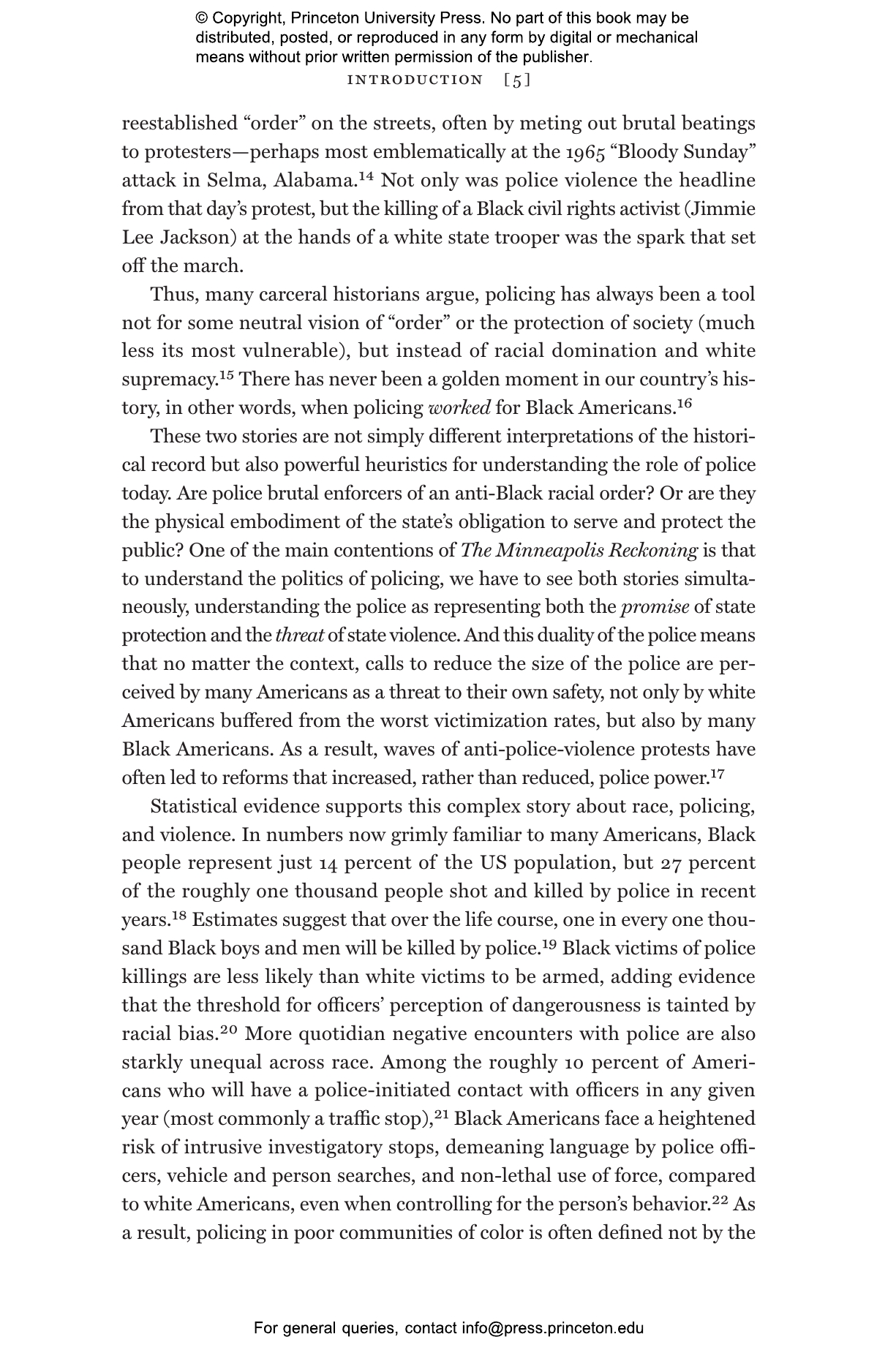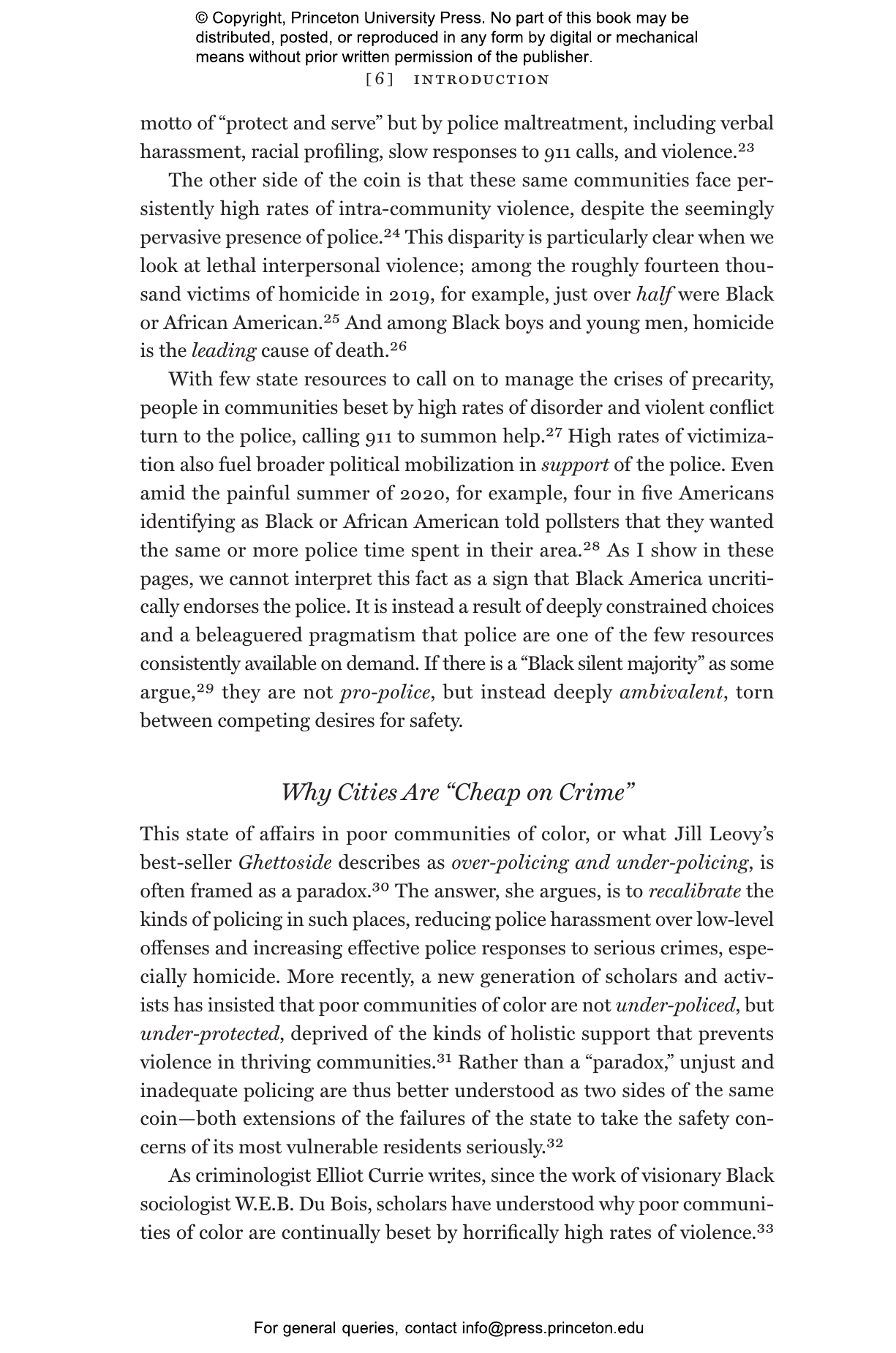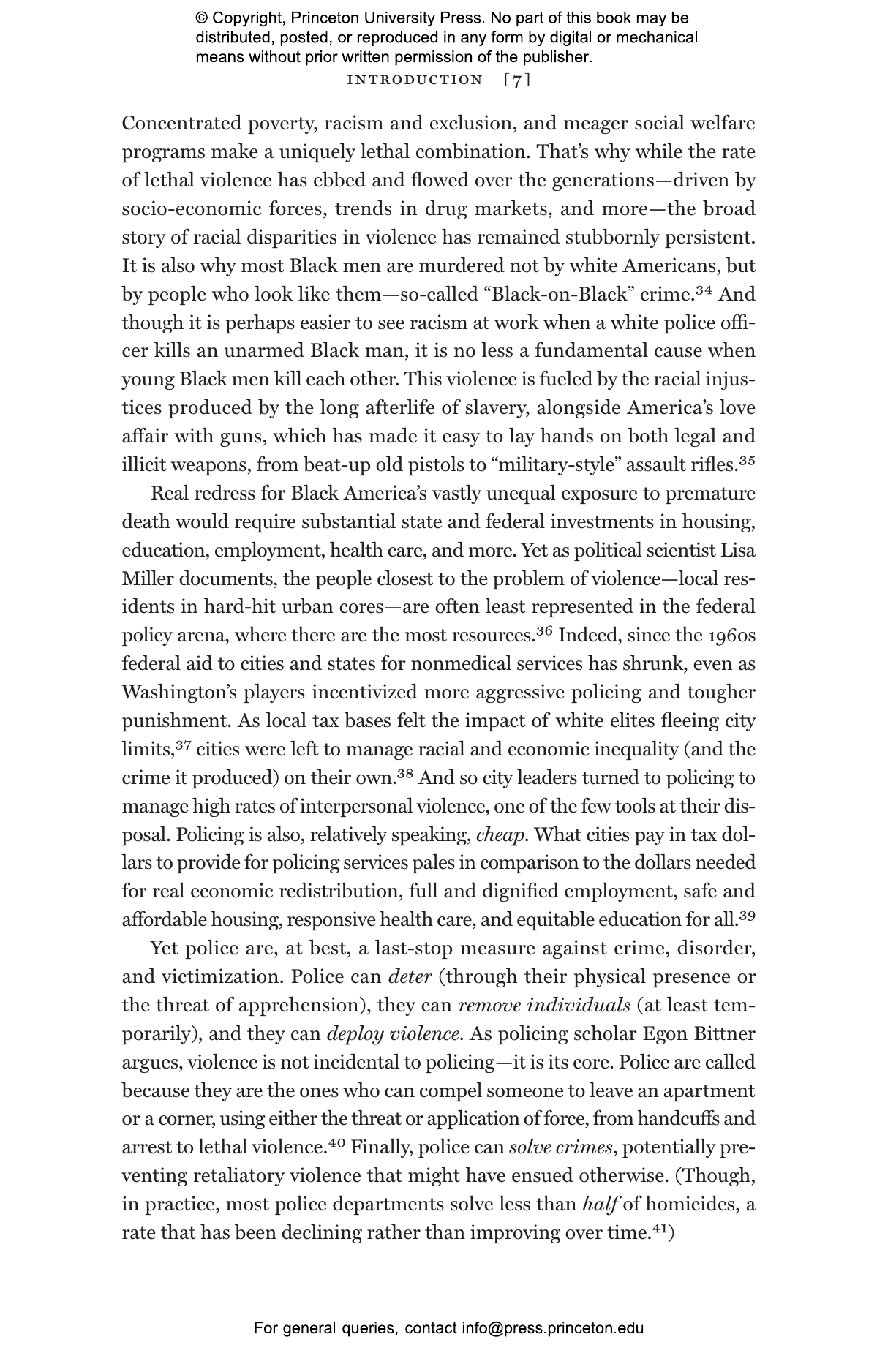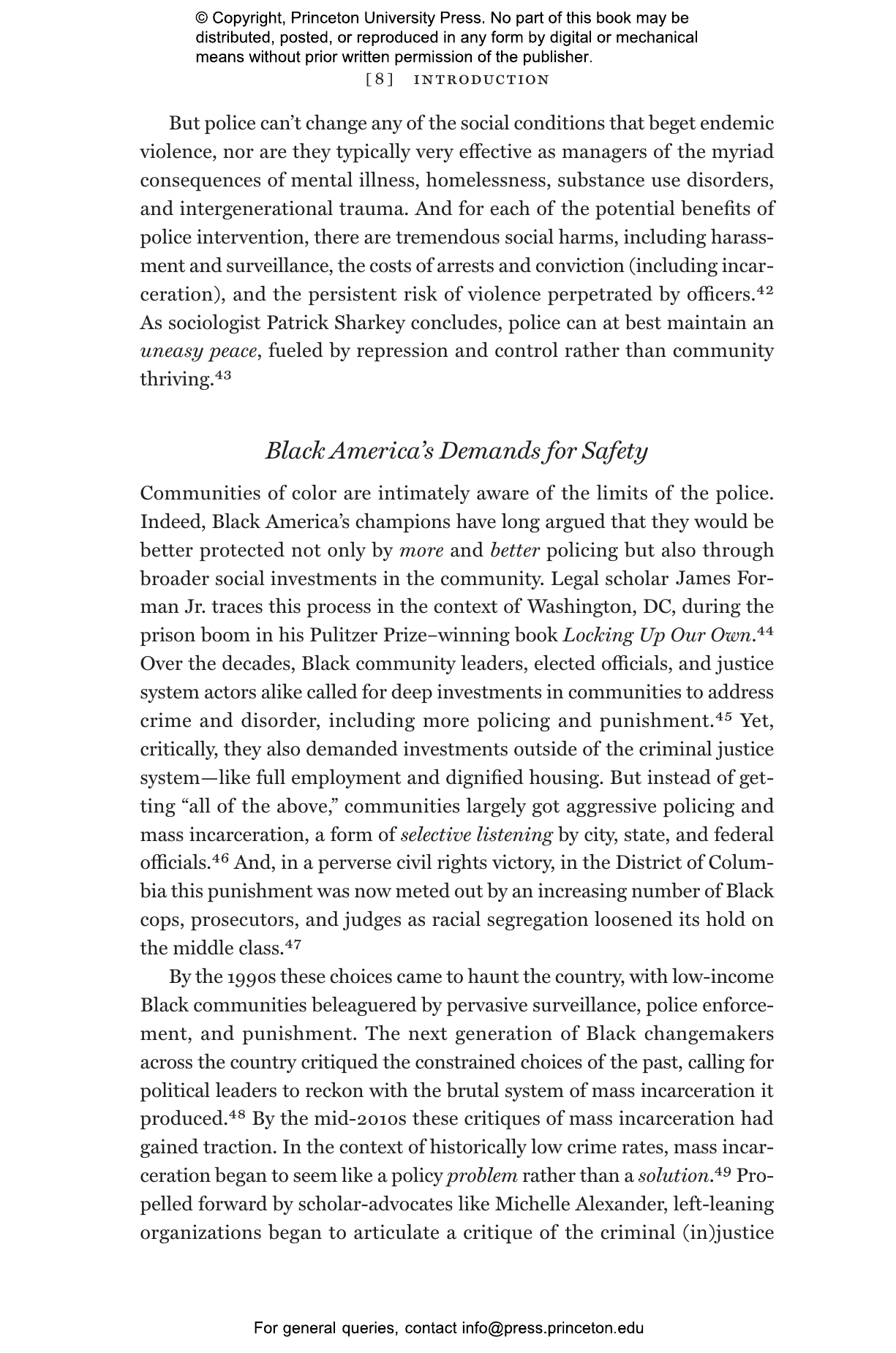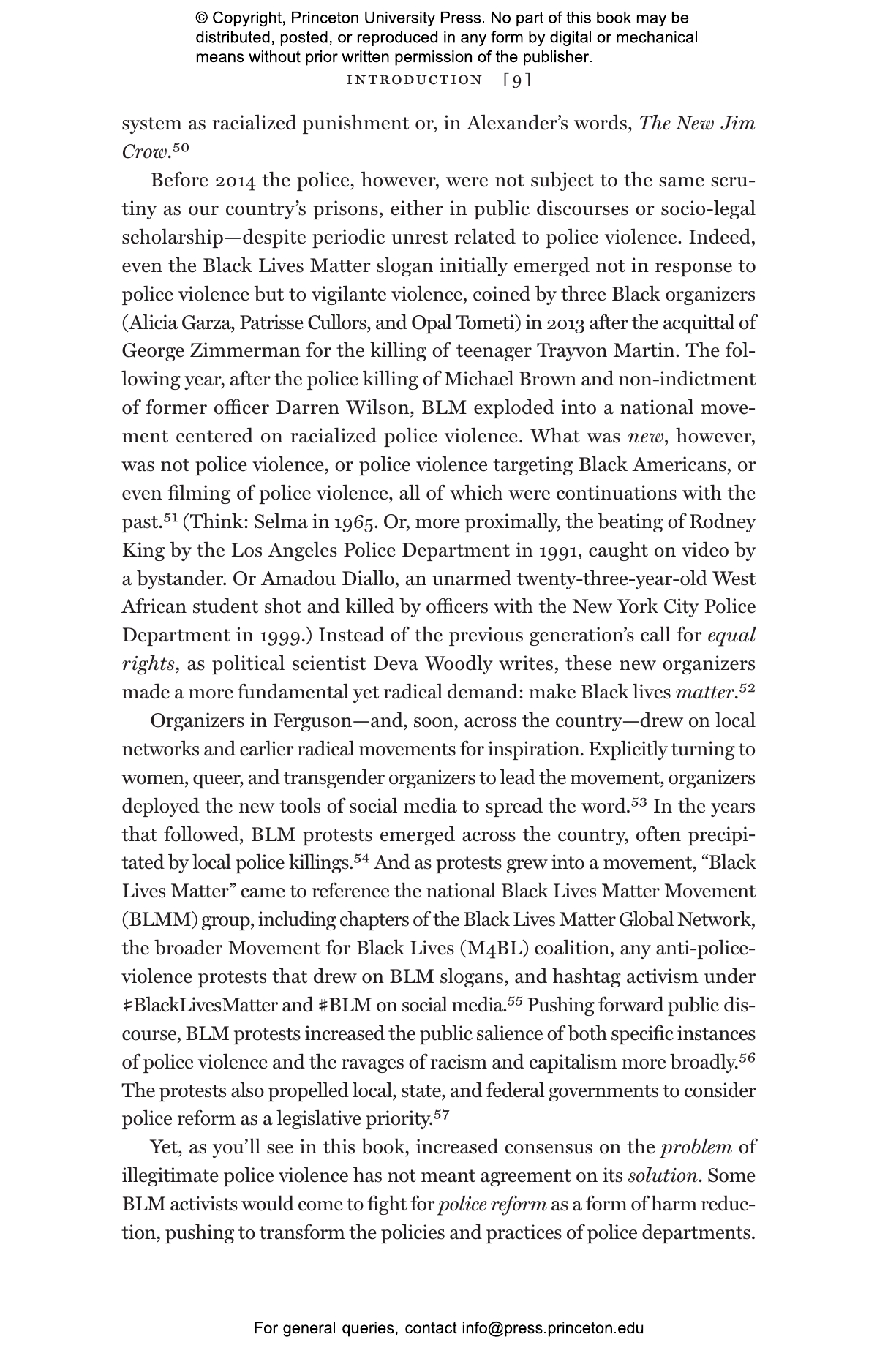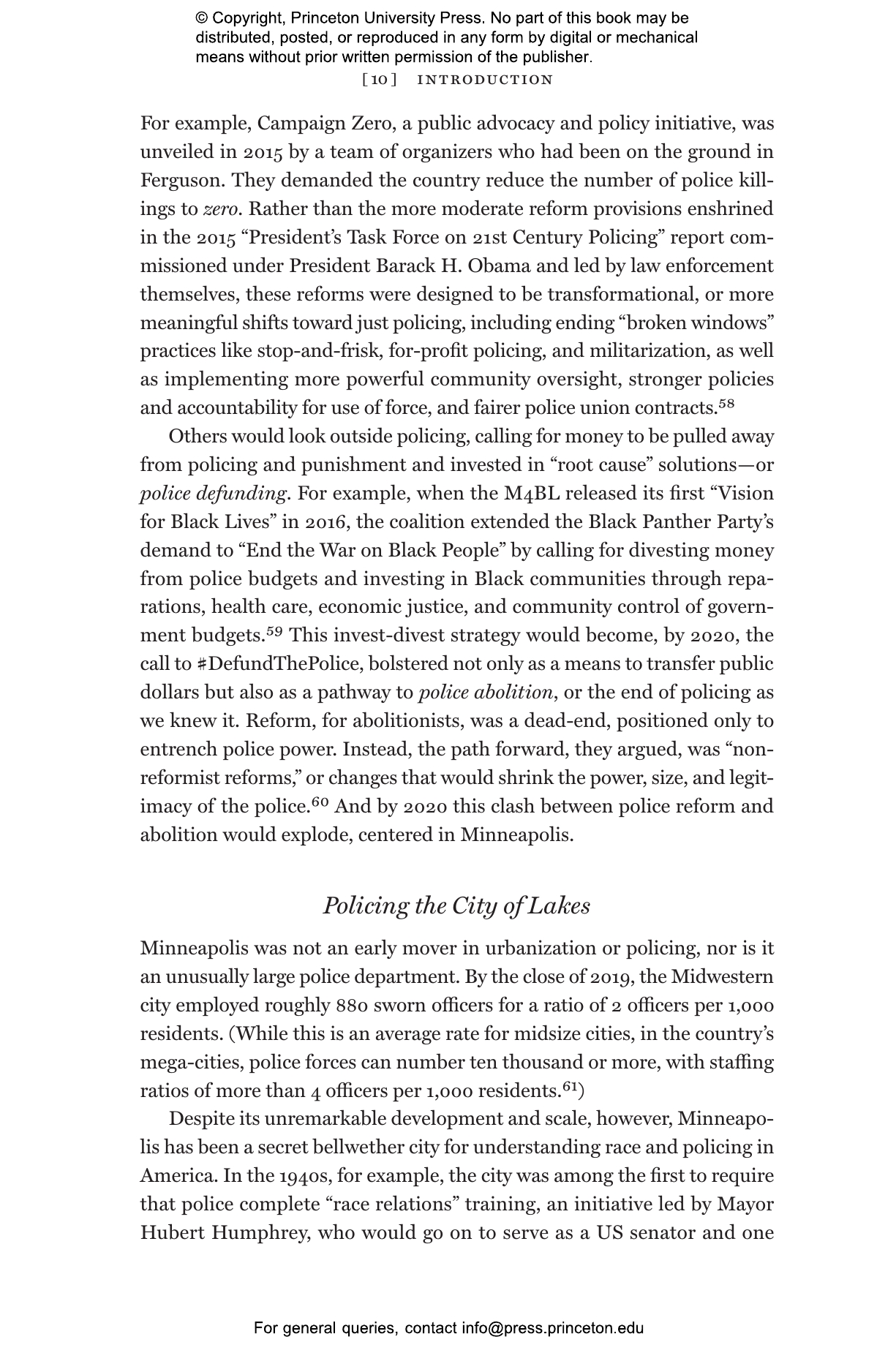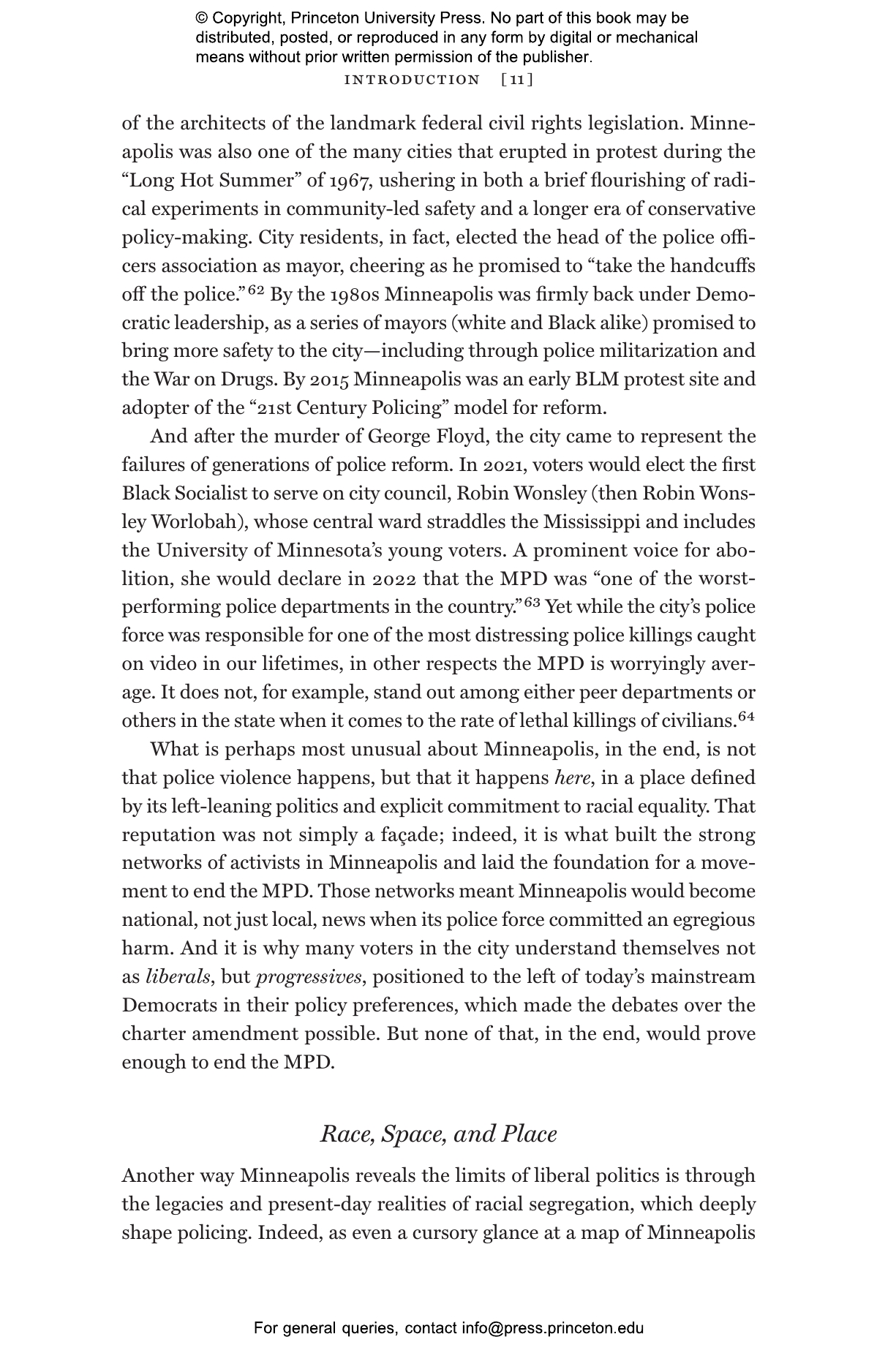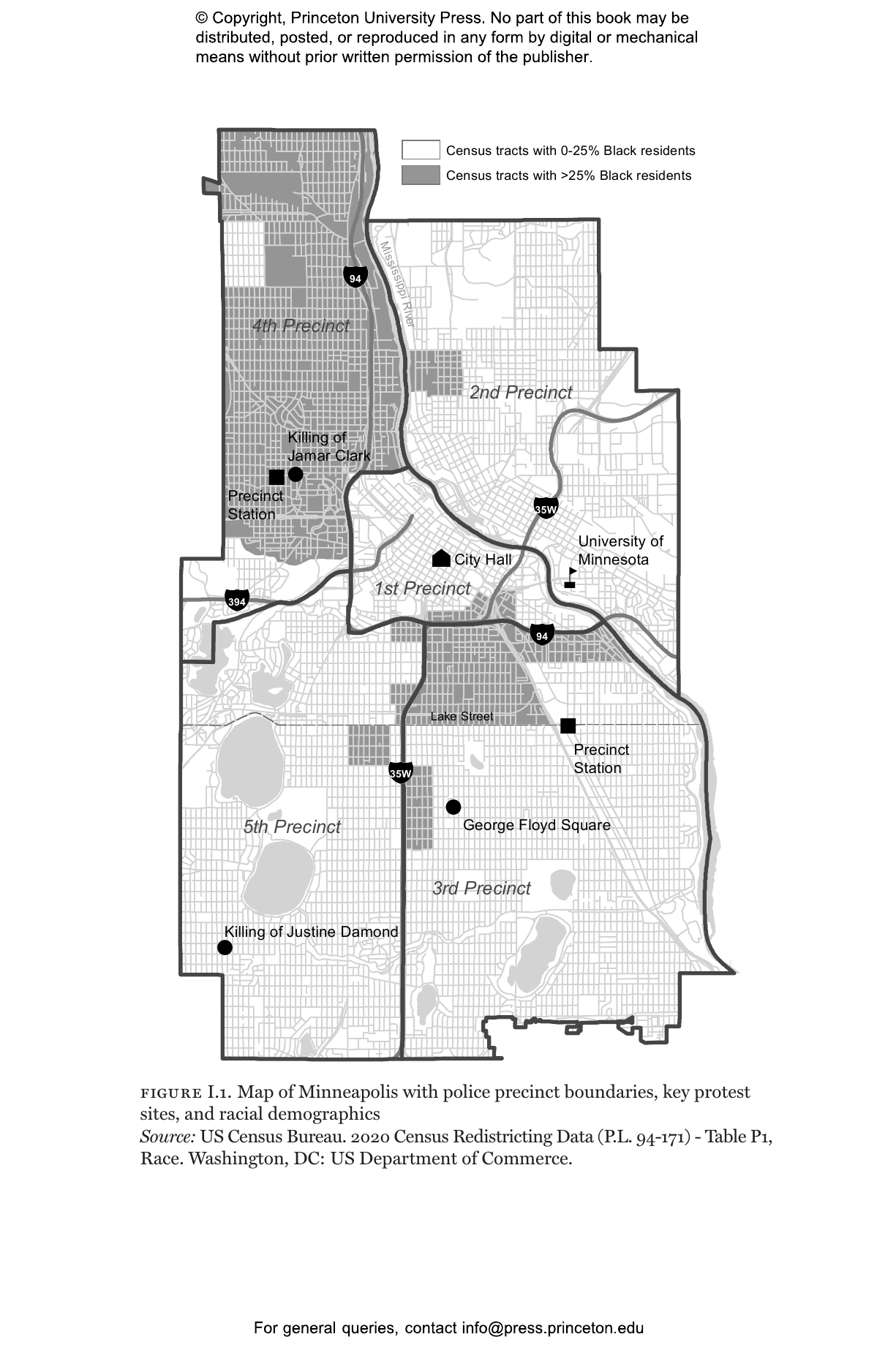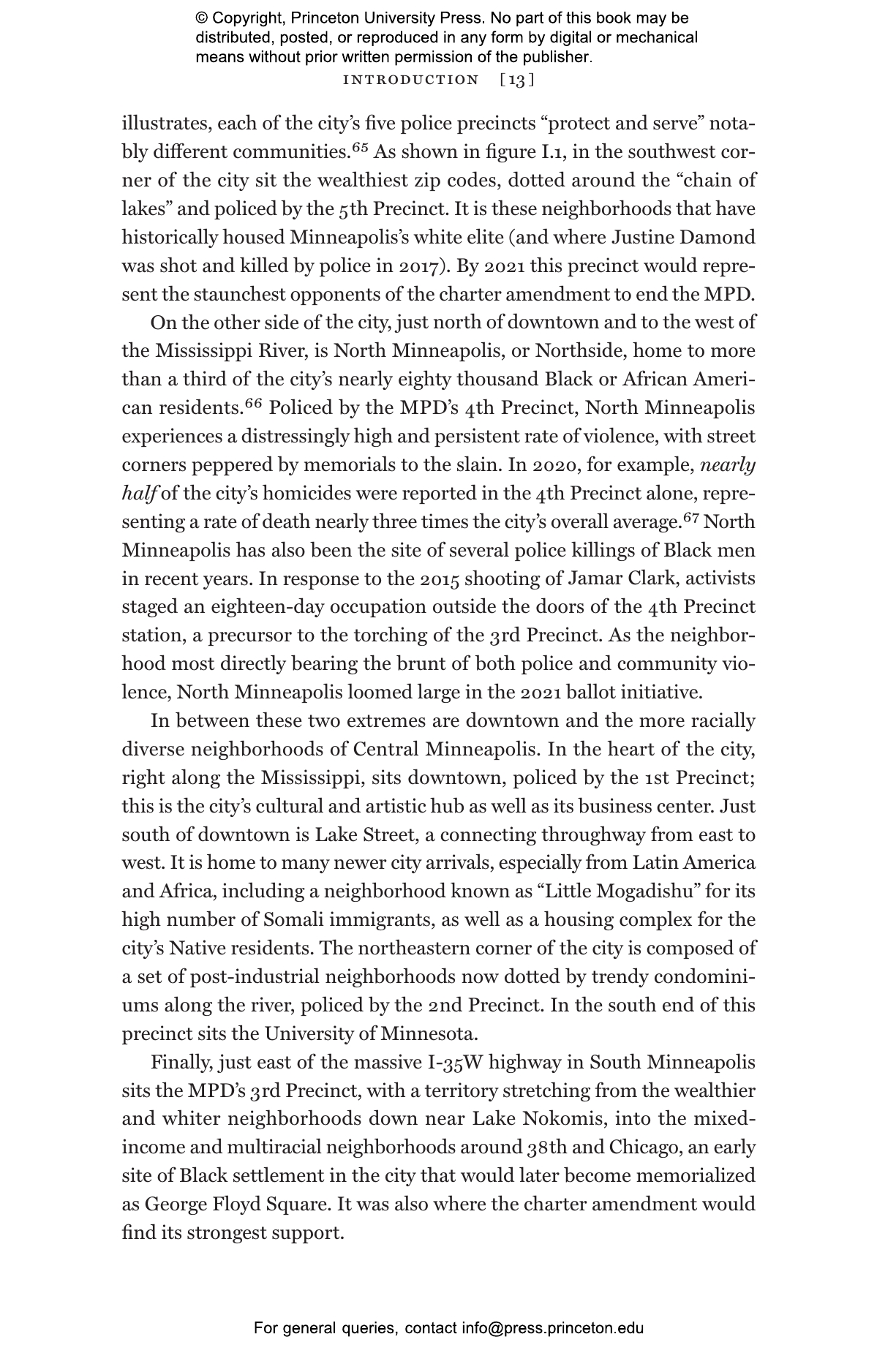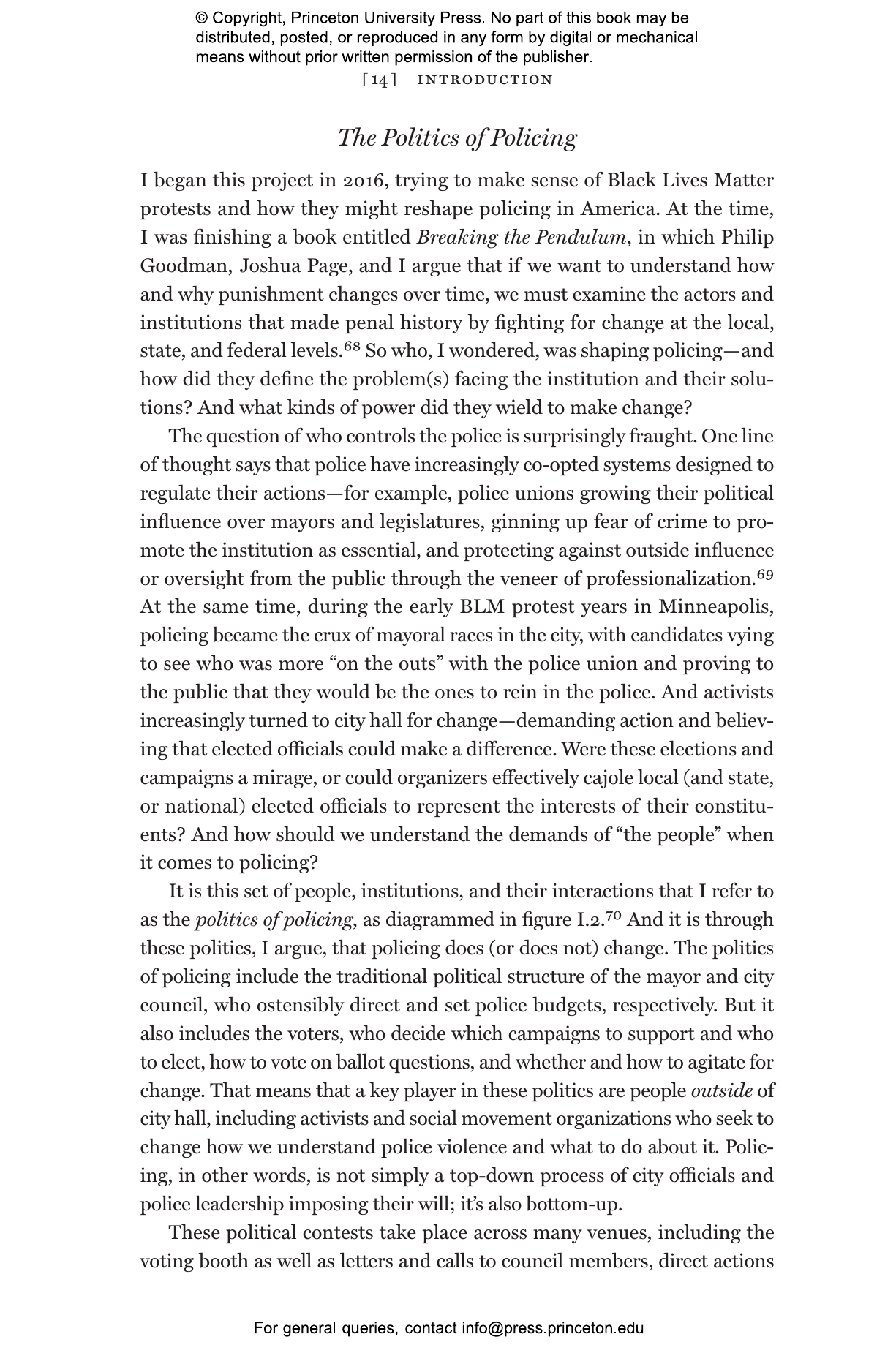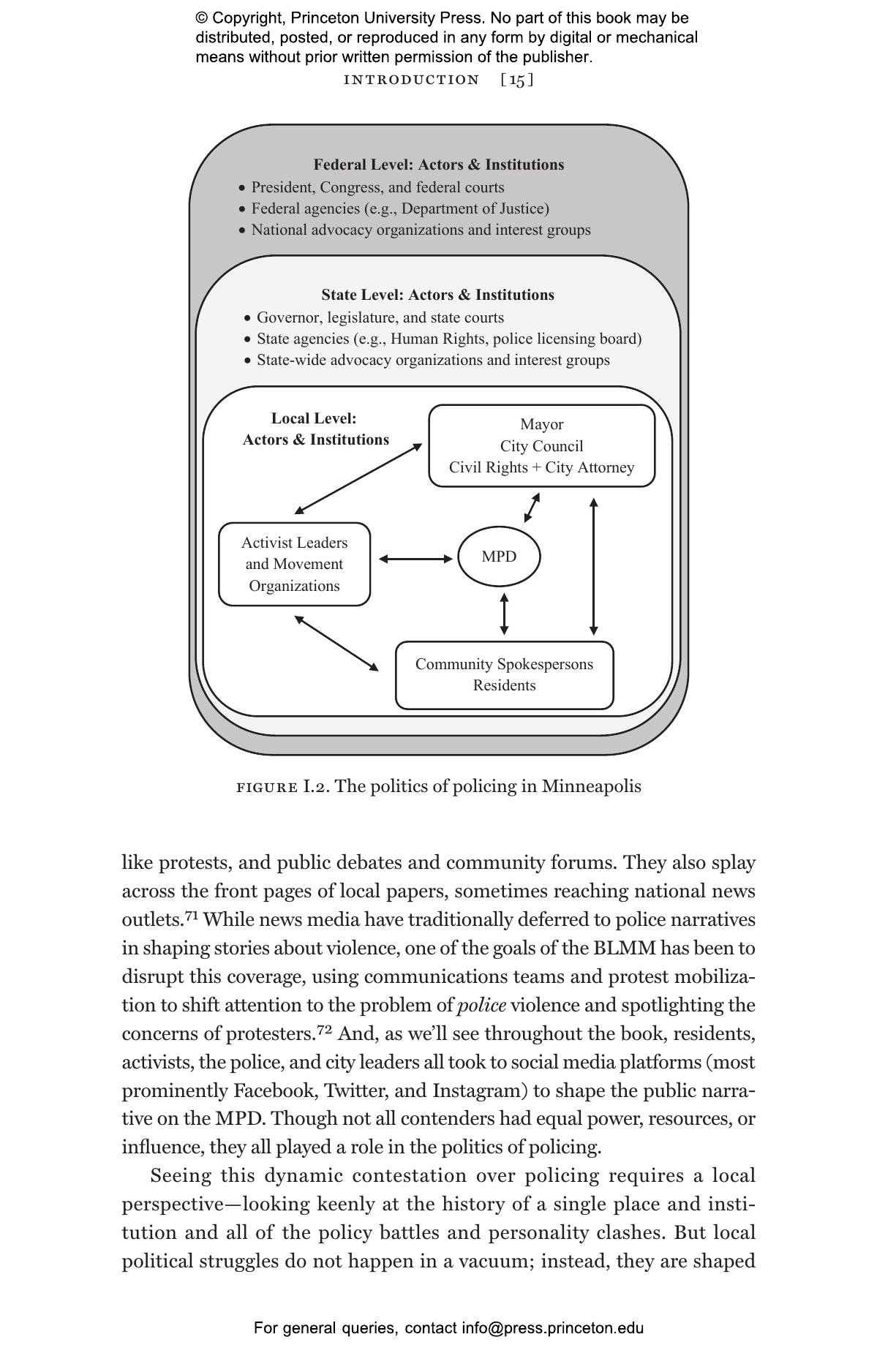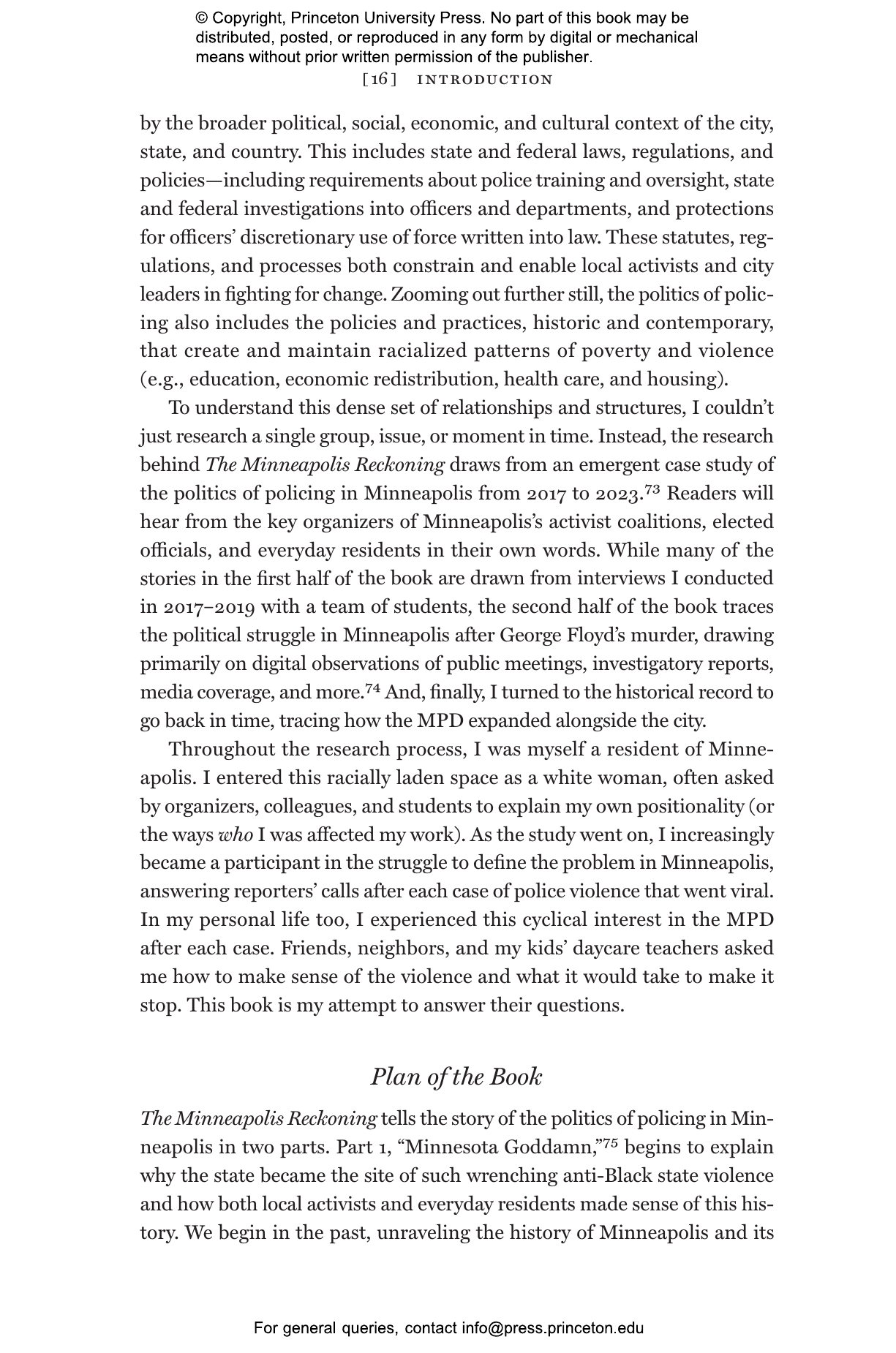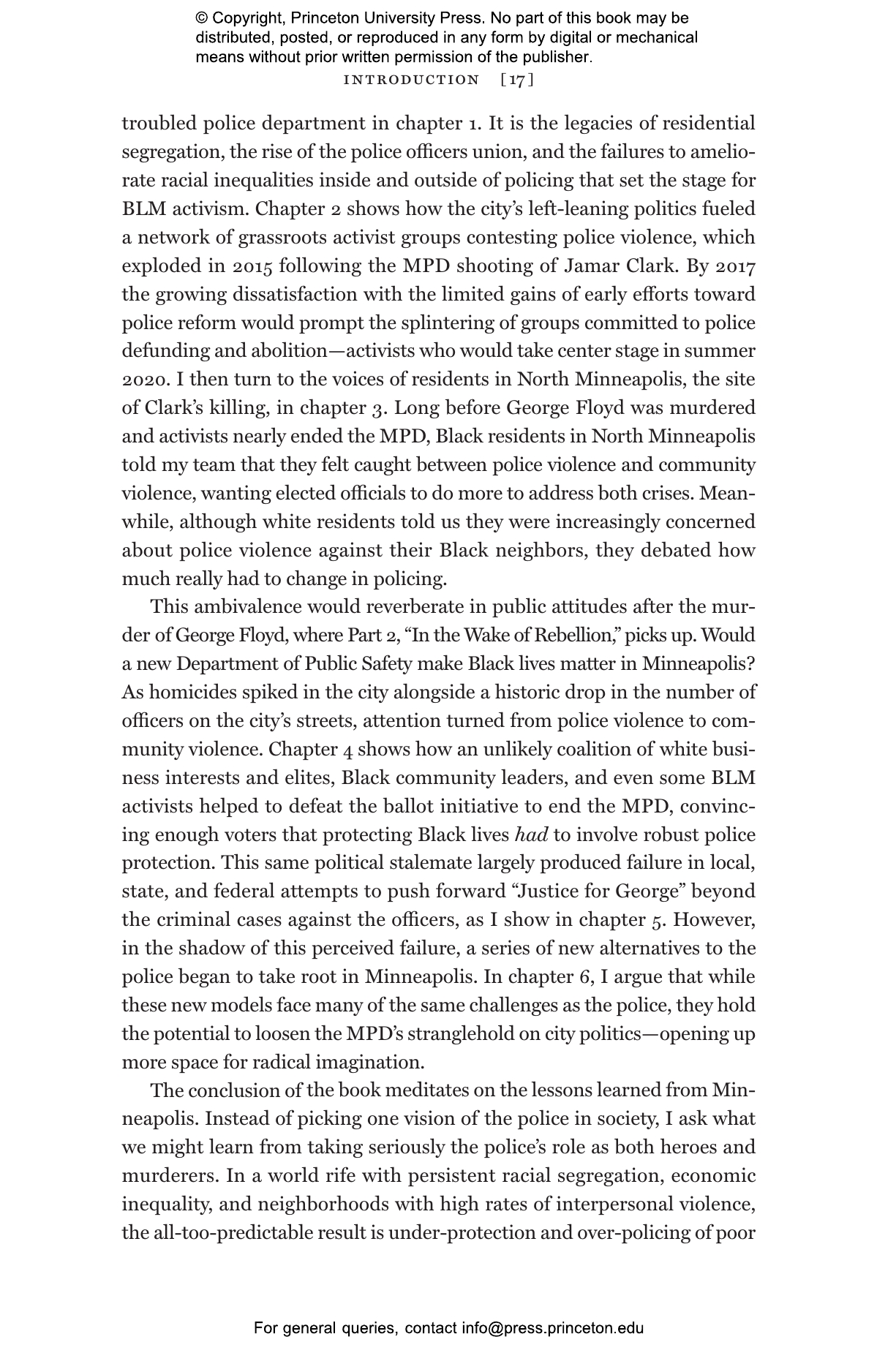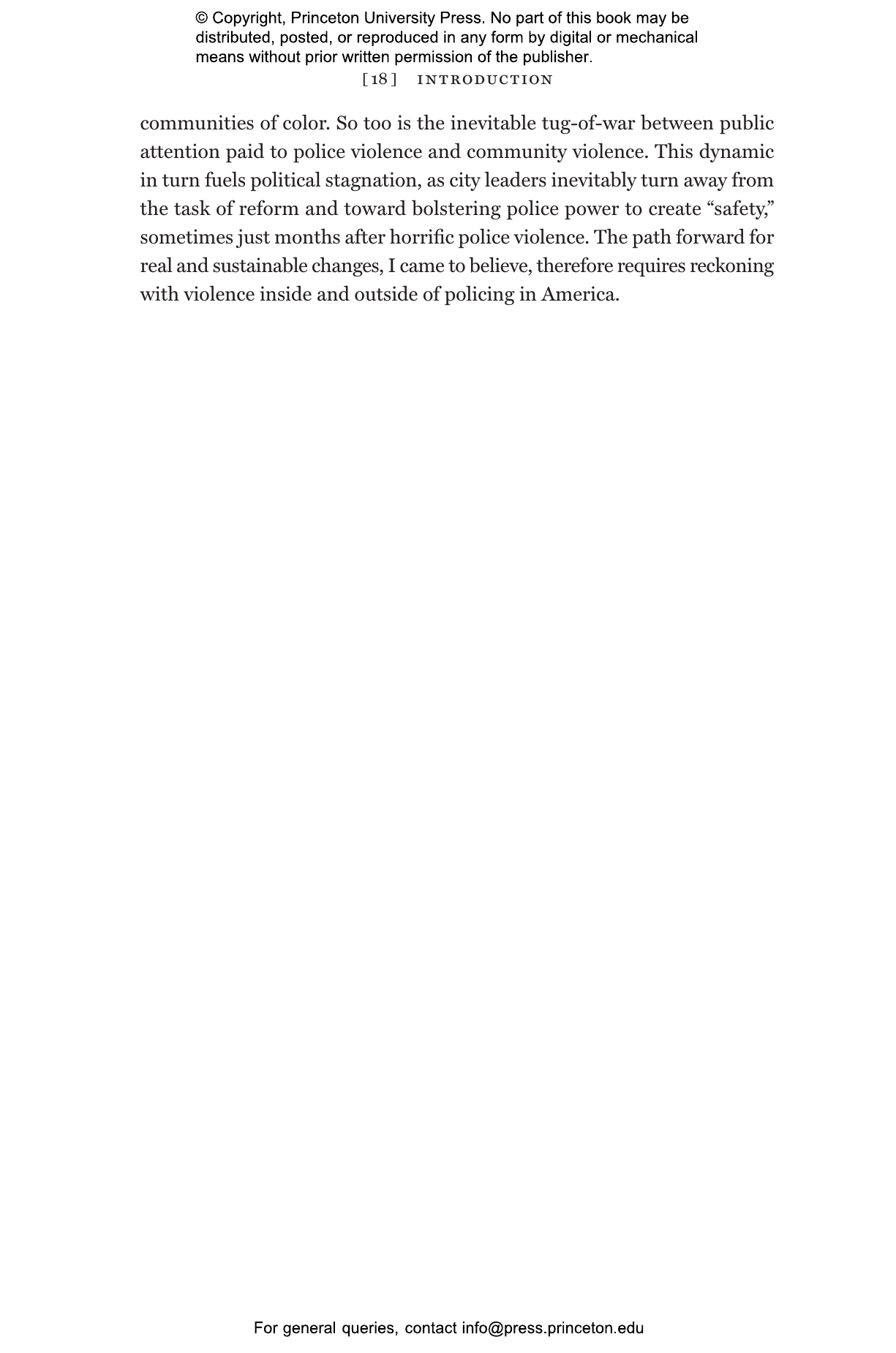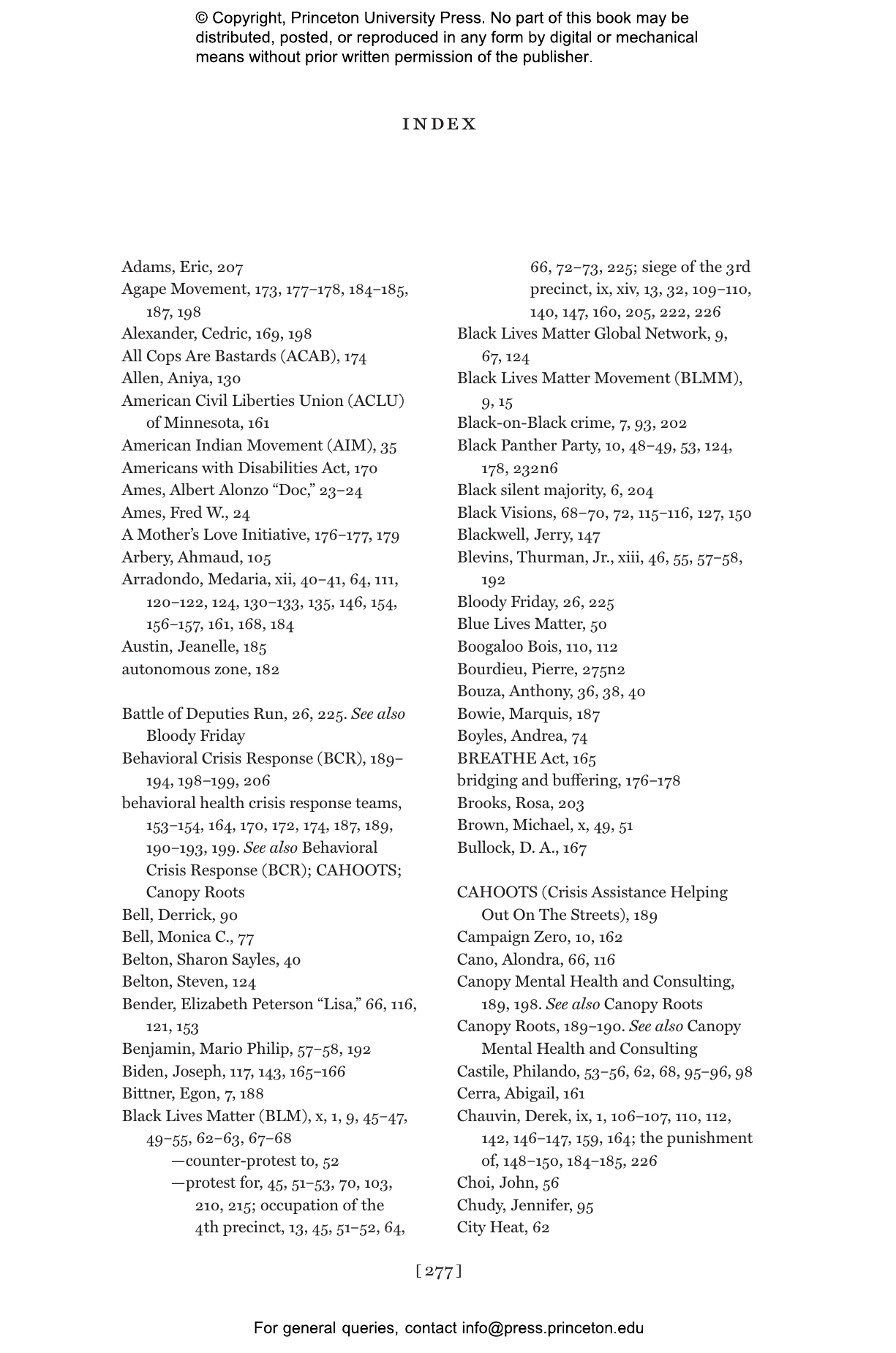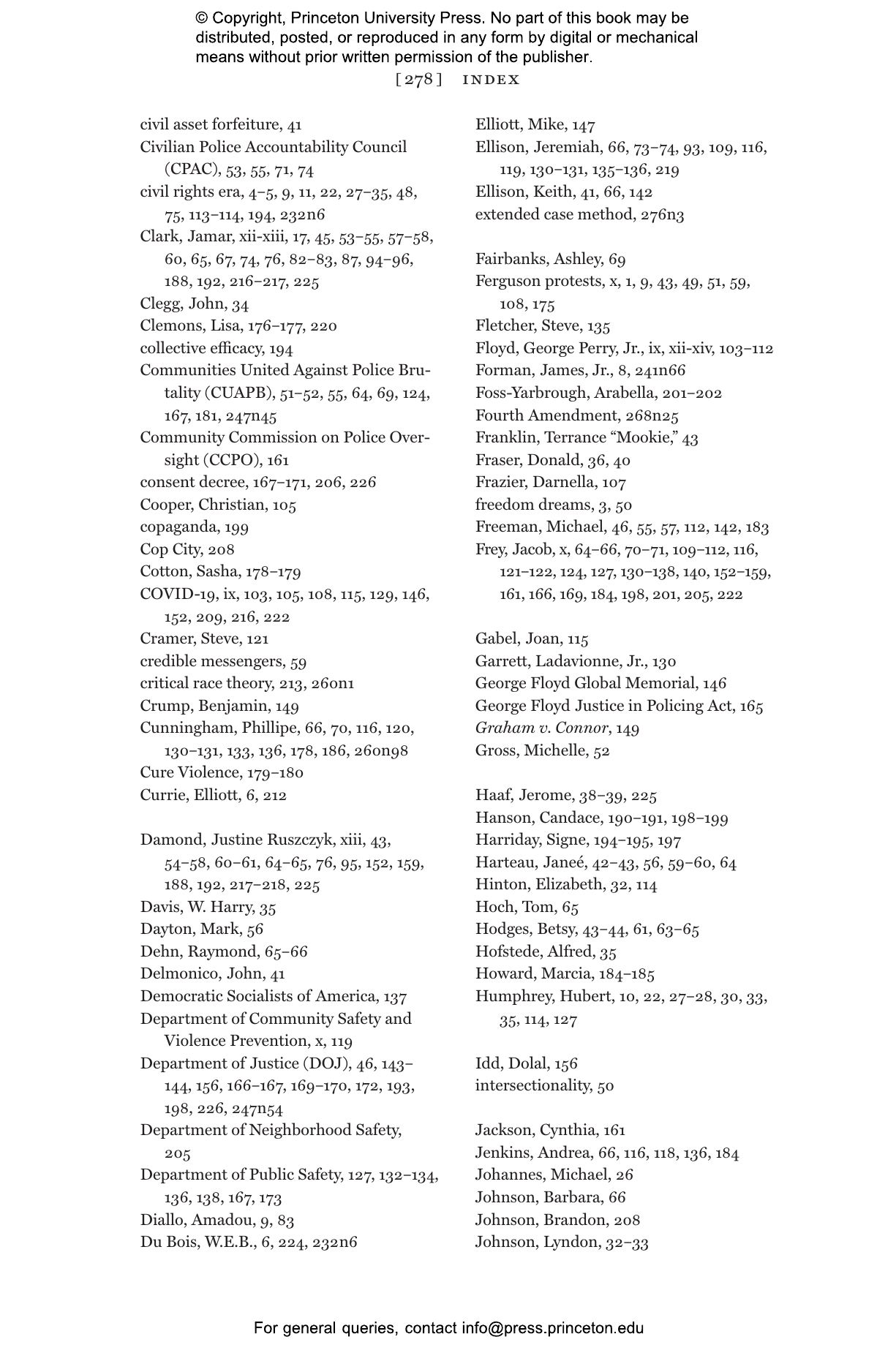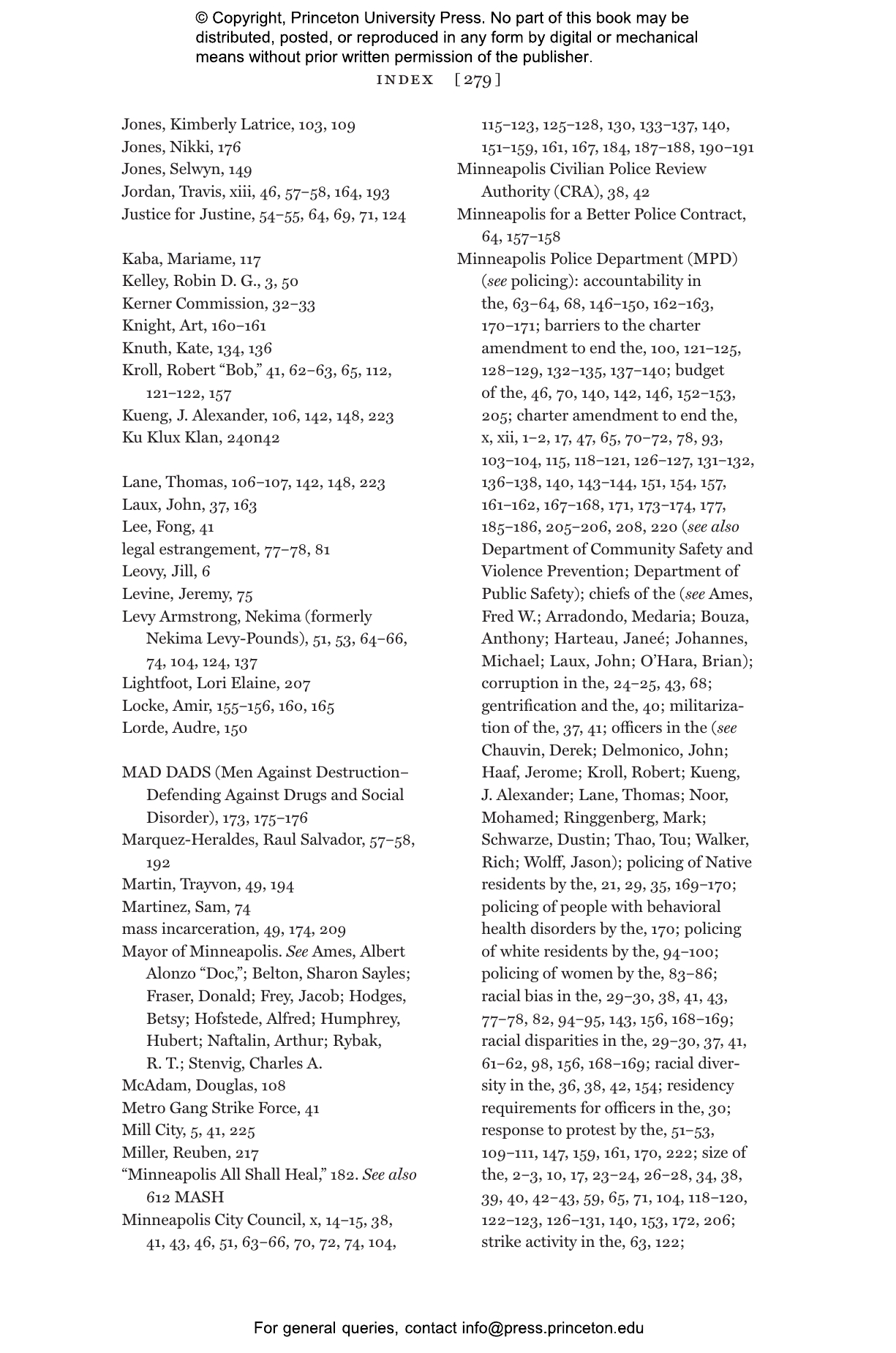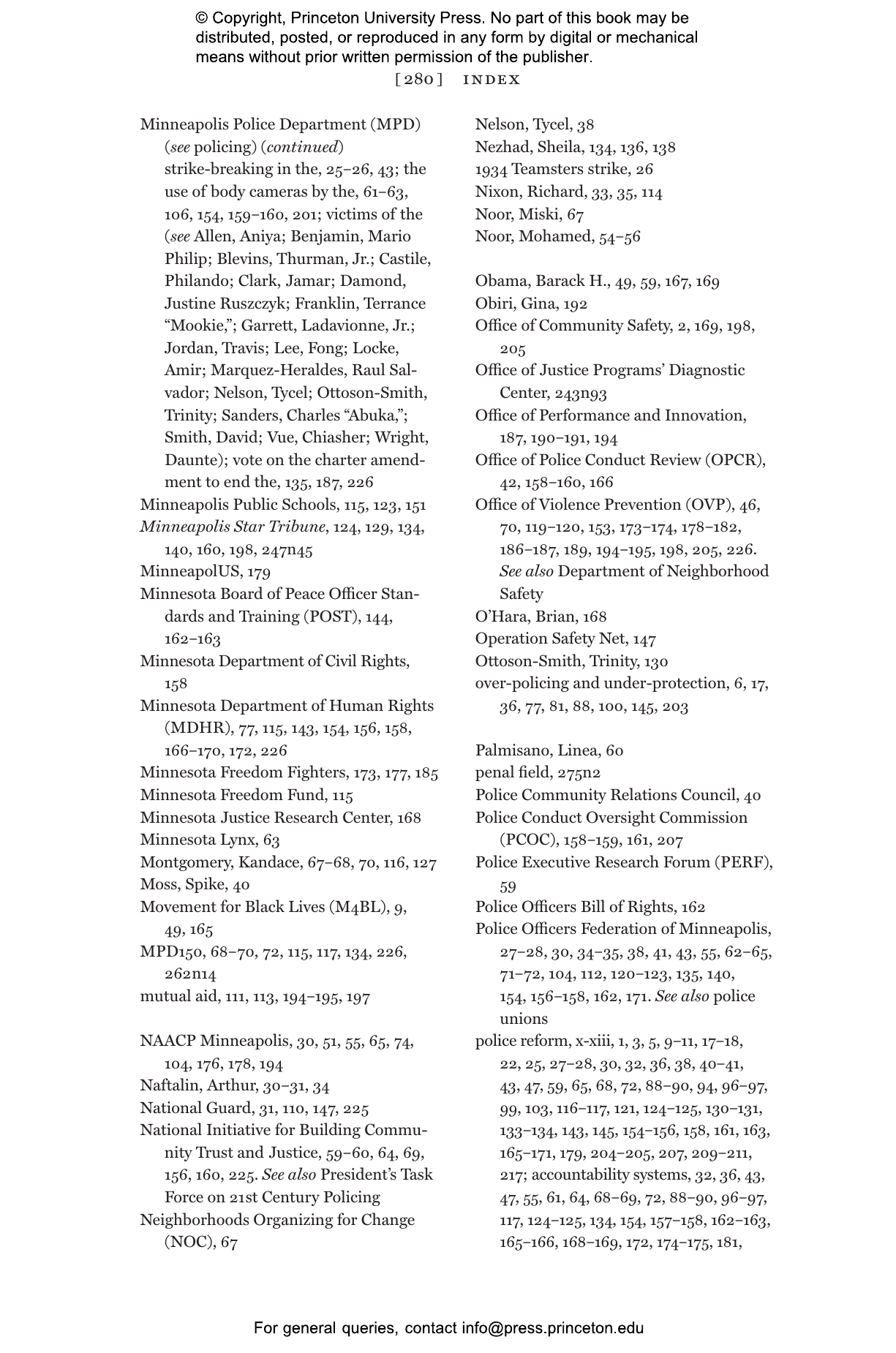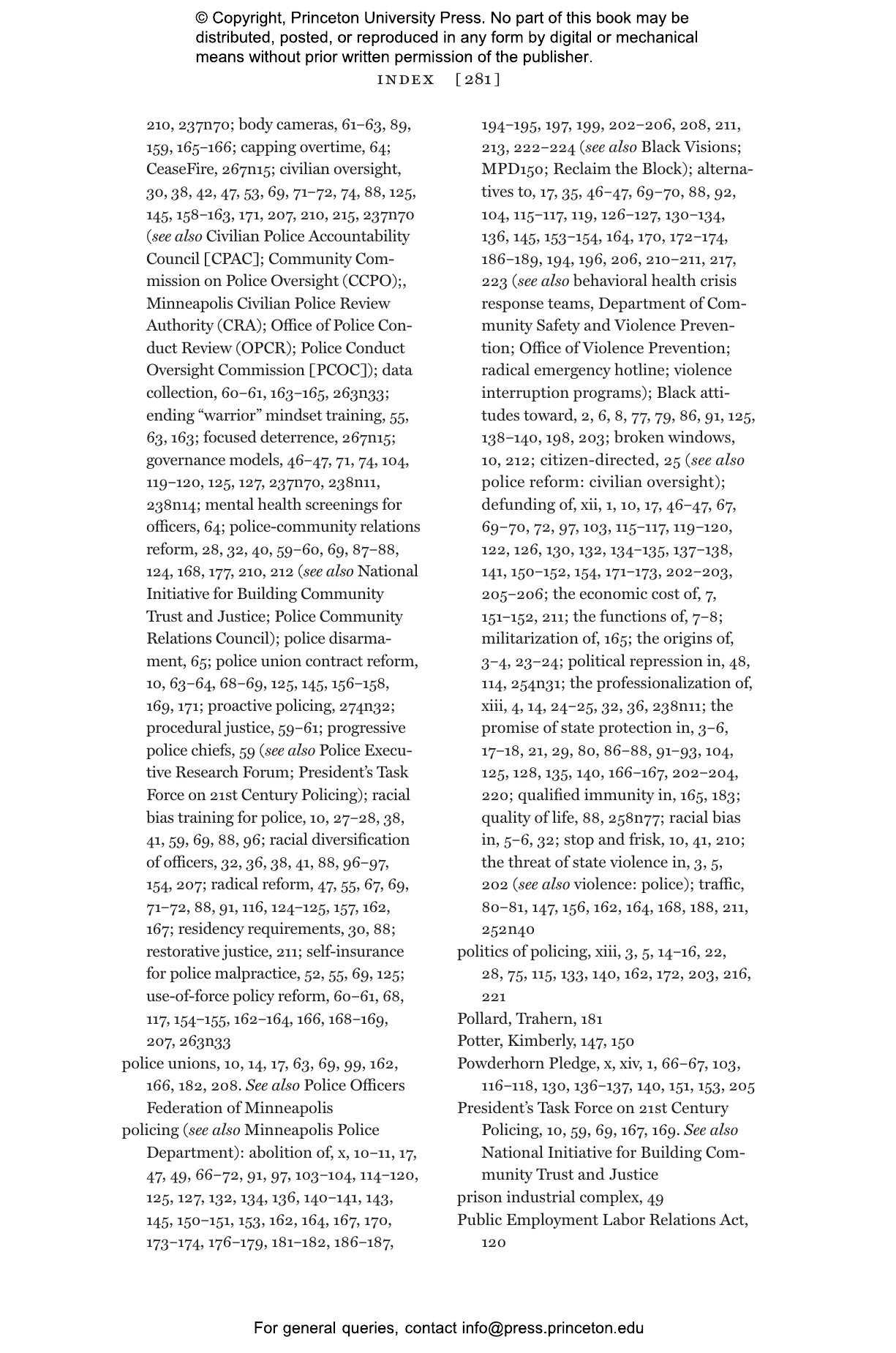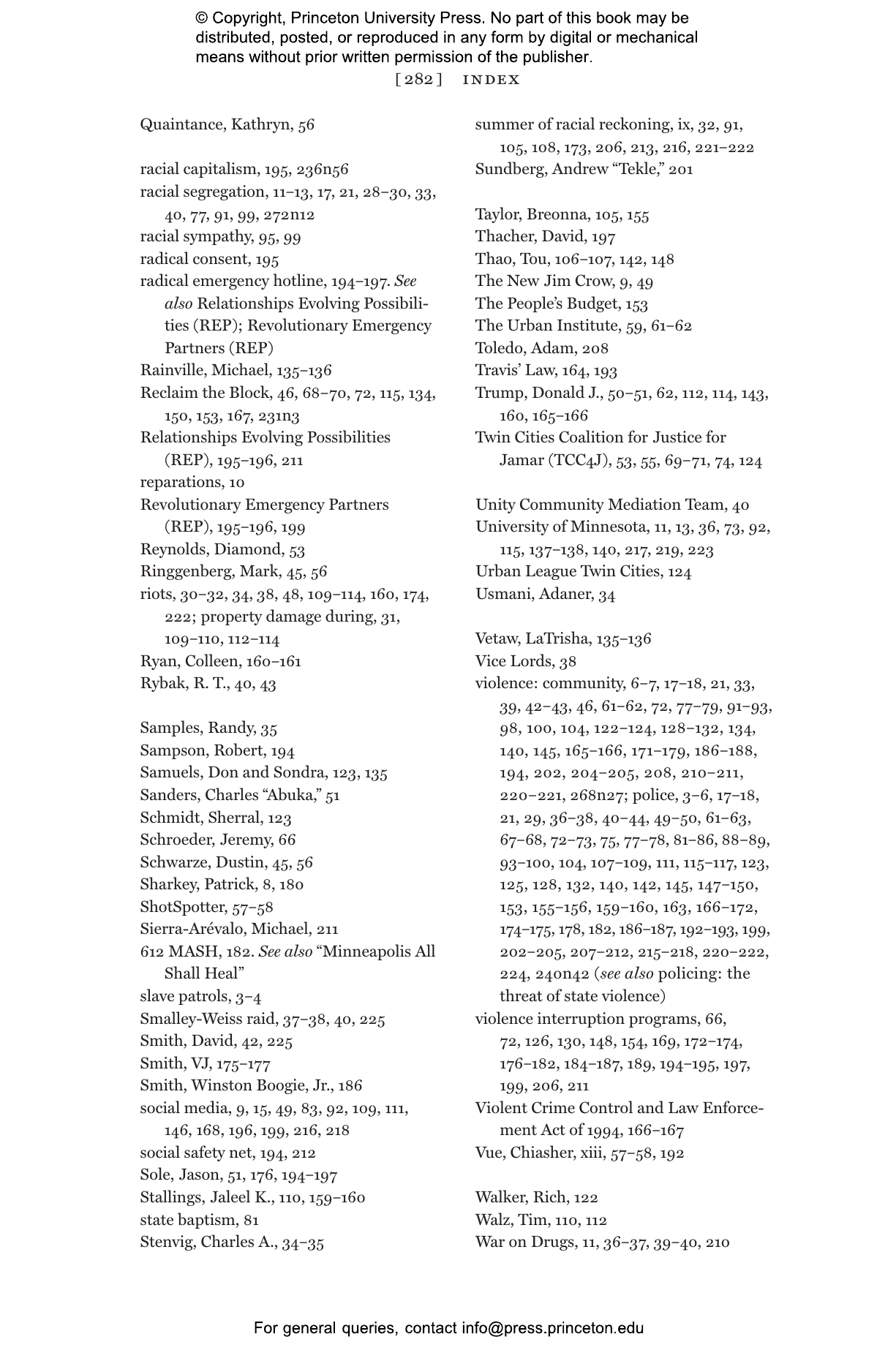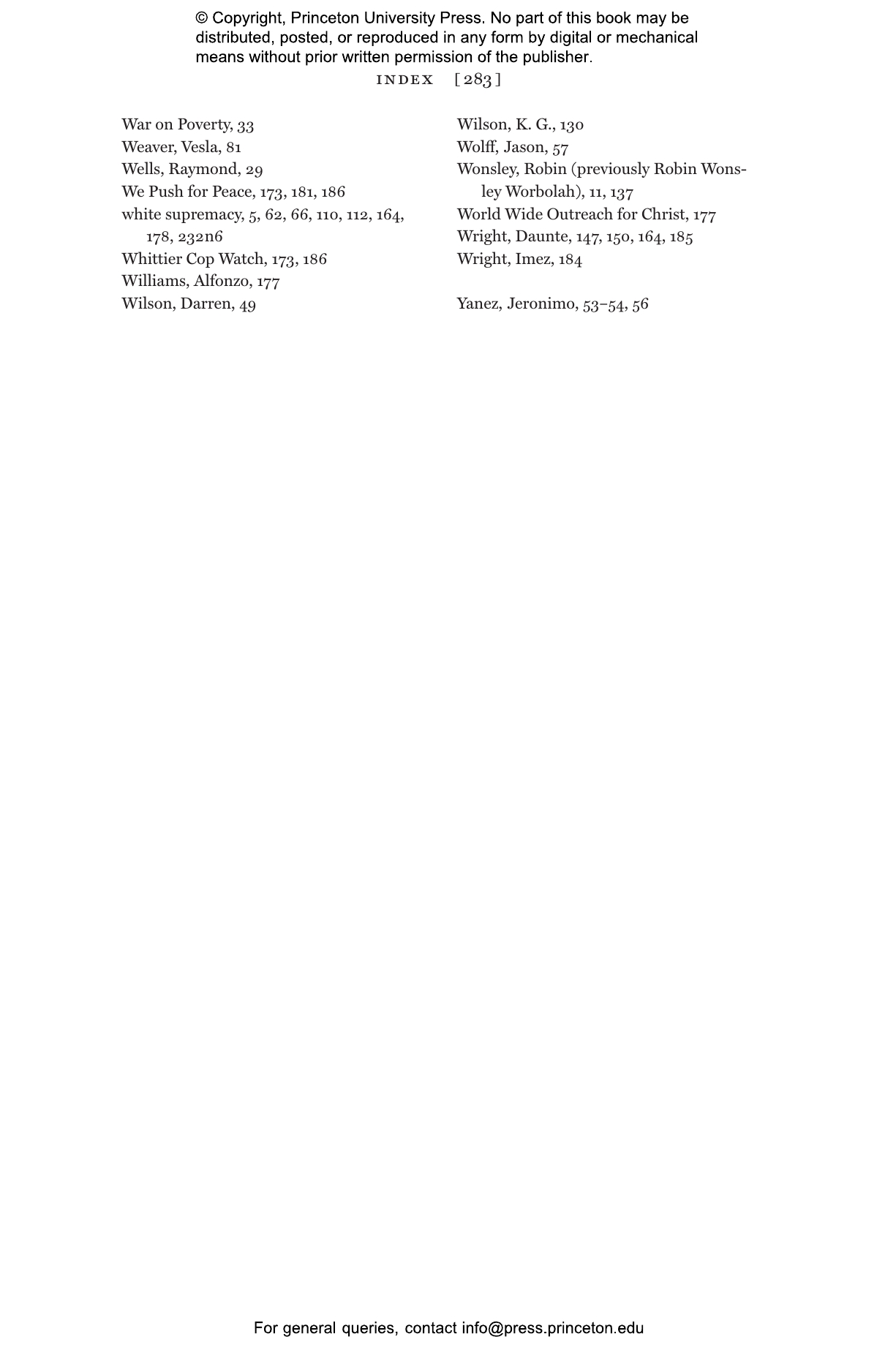The eruption of Black Lives Matter protests against police violence in 2014 spurred a wave of police reform. One of the places to embrace this reform was Minneapolis, Minnesota, a city long known for its liberal politics. Yet in May 2020, four of its officers murdered George Floyd. Fiery protests followed, making the city a national emblem for the failures of police reform. In response, members of the Minneapolis City Council pledged to “end” the Minneapolis Police Department. In The Minneapolis Reckoning, Michelle Phelps describes how Minneapolis arrived at the brink of police abolition.
Phelps explains that the council’s pledge did not come out of a single moment of rage, but decades of organizing efforts. Yet the politics of transforming policing were more complex than they first appeared. Despite public outrage over police brutality, the council’s initiatives faced stiff opposition, including by Black community leaders who called for more police protection against crime as well as police reform. In 2021, voters ultimately rejected the ballot measure to end the department. Yet change continued on the ground, as state and federal investigations pushed police reform and city leaders and residents began to develop alternative models of safety.
The Minneapolis Reckoning shows how the dualized meaning of the police—as both the promise of state protection and the threat of state violence—creates the complex politics of policing that thwart change. Phelps’s account of the city’s struggles over what constitutes real accountability, justice, and safety offers a vivid picture of the possibilities and limits of challenging police power today.
Awards and Recognition
- Winner of the Emilie Buchwald Award for Minnesota Nonfiction, Minneapolis Book Awards
"It is tempting to look back on the summer of 2020 and lament. For those few heady months, the way forward seems so clear. . . . Michelle Phelps' Minneapolis Reckoning is an account of that long, difficult struggle to transform policing in the City of Lakes. Phelps resists the tremendous appeal of a simple elegy. . . . [and] makes a strong case for the possibilities—and perhaps even necessity—of dwelling in the here-and-now of anti-police activism, where those wishing for a new world must relate to 2020 as a practical resource rather than as a revolutionary reverie."—Daniel Fernandez, Inquest
"The Minneapolis Reckoning is an essential text. . . . By bringing together scholarship on policing, social movements, political institutions and policymaking, social justice, and race, Minneapolis Reckoning offers valuable contributions to each while demonstrating the importance of examining their intersections."—Ryan T. Steel, Punishment & Society
"At the heart of The Minneapolis Reckoning is a nuanced account of the dynamic contests between political actors, movement actors, voters, and other stakeholders that unfolded in the aftermath of George Floyd’s murder."—Daanika Gordon, Law & Social Inquiry
"With the rise of mass movements critical of police violence and of the police role in society over the last decade, researchers began looking at policing anew. . . . What [Michelle Phelps] found is the oft documented duality among African Americans of being wary about police but still wanting to have them around to provide safety. Some have referred to this as the dynamic of over- and underpolicing, but Phelps adjusts that to an excess of problematic policing and a deficit of actual security. . . . Throughout [The Minneapolis Reckoning], Phelps provides a detailed explanation of abolitionist demands and organizing."—Alex S. Vitale, American Journal of Sociology
"Incredibly compelling. . . . Instead of simply providing a historical chronicle of this tragic event, Phelps successfully captures the complex tapestry of interests and individuals instrumental to the pursuit of police reform in Minneapolis. While her commitment to police reform is evident throughout her writing, one of the many commendable aspects of this work is the nuance and balance she brings to presenting the complexity of views of police violence and possible remedies."—David Latimore, Christian Century
"Phelps highlights the connection between the culture of policing and politics implicating both in the failure to hold police accountable and to rein in their influence. . . . Phelps then moves on to discuss how these failures galvanized activists within the city and began to lead many of them toward an abolitionist approach. . . . While the failure to abolish the MPD may be seen by some as an indictment of the movement, the fact that they were able to garner so much support for a proposition that prior to 2020 would have been dismissed as an impossibility should give hope to activists."—Daniel Krasnicki, Sociology of Race and Ethnicity
"A valuable piece of research on how fights for police reform are won and lost, and what reform means to the people who need it most."—C.J. Ciaramella, Reason
“The Minneapolis Reckoning is a timely, thought-provoking examination of the larger context that led to the murder of George Floyd by police in May 2020 and the resulting struggle for reform. Michelle Phelps takes readers on a journey from the streets of Minneapolis to the corridors of power, unraveling a complex tapestry of competing interests and contests over public safety. This book is essential reading for anyone interested in understanding the problem of policing and its possible solutions.”—Elizabeth Hinton, author of America on Fire: The Untold History of Police Violence and Black Rebellion since the 1960s
“The murder of George Floyd didn’t happen in a vacuum. In this fantastic book, Michelle Phelps shows how the history of Minneapolis helps explain why the city became the flashpoint for a national discussion on policing. The Minneapolis Reckoning may well become the definitive account of how the movement for police reform collides with the local politics of race, inequality, and violence.”—Patrick Sharkey, author of Uneasy Peace: The Great Crime Decline, the Renewal of City Life, and the Next War on Violence
“The Minneapolis Reckoning is a tour de force that will change the way you think about the politics of policing in the twenty-first century. Comprehensively researched and empathetically rendered, the book tells the gripping story of the struggle to transform policing in one of America’s most progressive cities and exposes the tragic dynamics that make lasting change so difficult. Sobering but hopeful.”—Monica C. Bell, Yale Law School
“Overpoliced yet underprotected, Black communities have long pushed for better policing. The Minneapolis Reckoning highlights the political processes, bureaucratic mechanisms, and self-interests that make police reform so difficult and so necessary. Anyone concerned about the perpetual crisis of American policing should read this book, which is likely to become a definitive guide to the nation’s 2020 uprising.”—Victor Ray, author of On Critical Race Theory: Why It Matters and Why You Should Care
